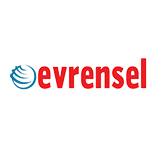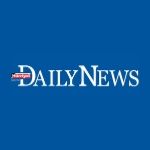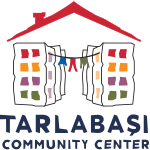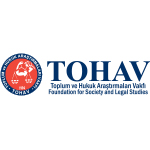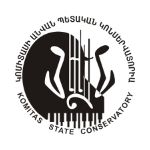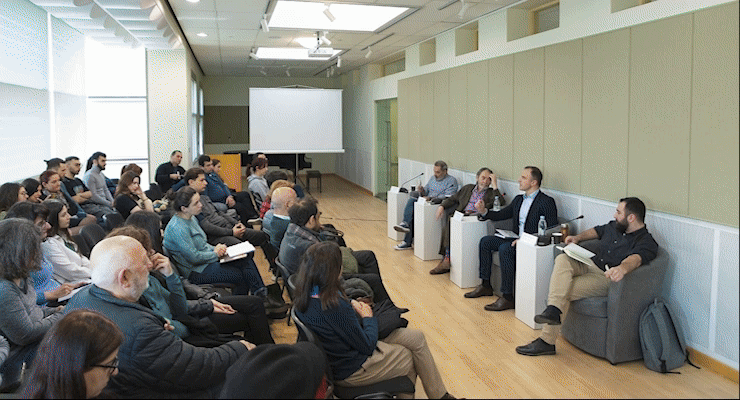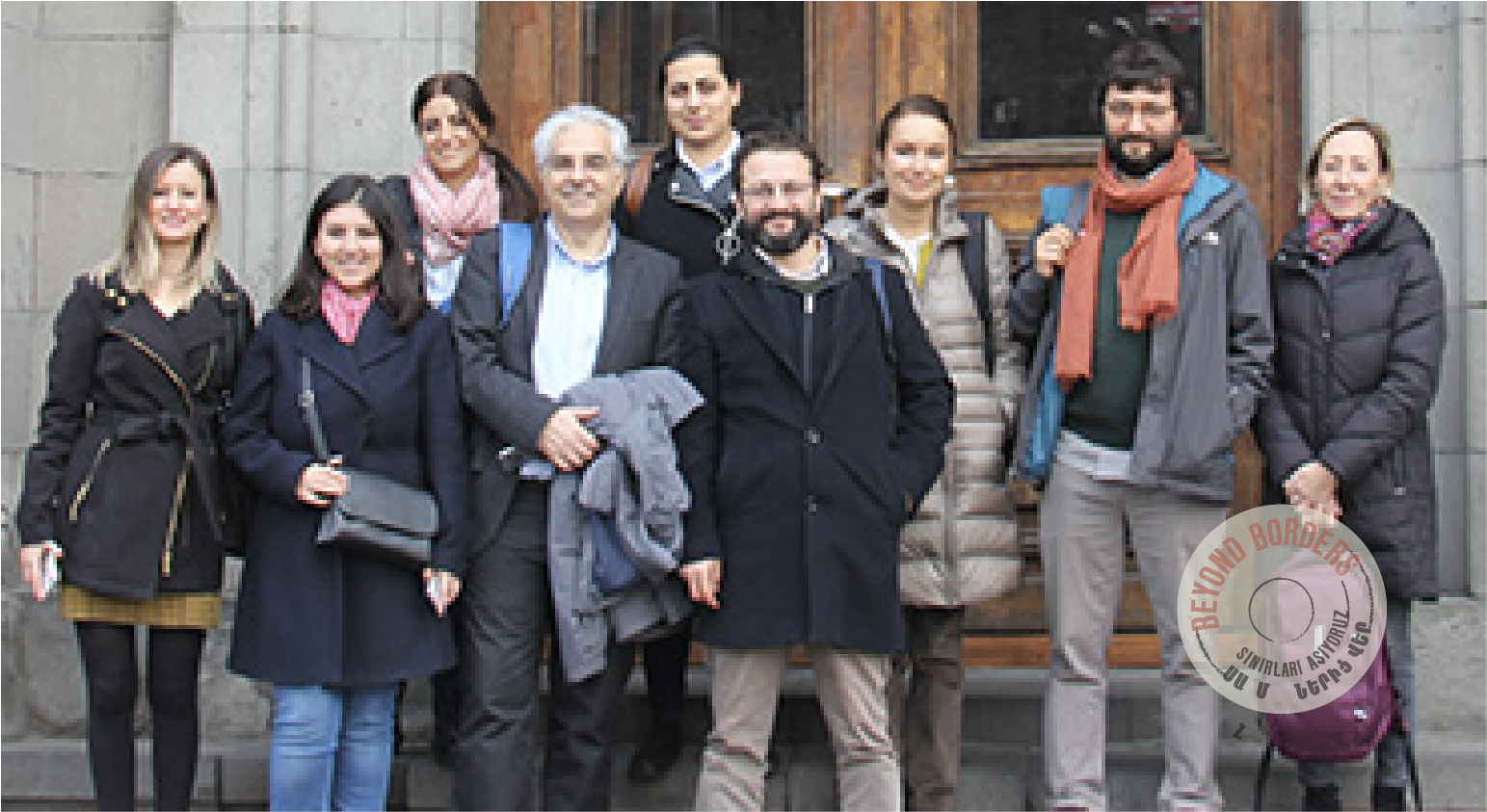Հայաստան-Թուրքիա փորձի փոխանակման նախագծի դիմումները ժամանակավորապես կասեցված են՝ պայմանավորված Քովիդ19-ի հետևանքով առաջացած համավարակով և ճանապարհորդելու սահմանափակումներով: Խնդրում ենք հետևել մեր հայտարարություններին՝ ծրագրի մասին հետագա նորությունների և դիմելու ընթացակարգի մասին տեղեկանալու համար:
Հրանտ Դինք հիմնադրամը, համագործակցելով Գյումրու «Երիտասարդական նախաձեռնությունների կենտրոն» ՀԿ-ի հետ, մեկնարկում է Հայաստան-Թուրքիա փորձի փոխանակման նախագծի նոր շրջափուլ՝ նպատակ ունենալով խթանելու փորձի փոխանակումը երկու երկրների միջև։ 2020-2021 թվականներն ընդգրկող շրջափուլն իրականացվում է «Աջակցություն Հայաստան-Թուրքիա կարգավորման գործընթացին․ 3-րդ փուլ» ծրագրի շրջանակներում՝ Եվրոպական միության աջակցությամբ։
Հայաստան-Թուրքիա փորձի փոխանակման նախագիծը կաջակցի Հայաստանից և Թուրքիայից ընդհանուր թվով 8 մասնագետի՝ մեկ ամիս ժամկետով ապրելու և գործելու հարևան երկրի որևէ հյուրընկալող կազմակերպությունում այնպիսի ոլորտներում, ինչպիսիք են՝ գիտություն, քաղաքացիական հասարակություն, մեդիա, մշակույթ և արվեստ, իրավունք, առողջապահություն, տնտեսություն, տեղեկատվական տեխնոլոգիաներ և մի շարք այլ ոլորտներ, որտեղ կա անհրաժեշտություն համագործակցելու: Ծրագրի իրականացման ժամկետներն են՝ 2020 թվականի ապրիլից մինչև 2021 թվականի հուլիսը: 51 կազմակերպություն Թուրքիայից և 30 կազմակերպություն Հայաստանից առաջարկում են իրենց ծրագրերը՝ դիմորդների համար:
Ցանկացած դիմորդ, ով ունի անհատական ծրագիր նշվածներից զատ, և կազմակերպությունը, որը ցանկանում է հյուրընկալել մասնագետի, կարող են առանձին կապ հաստատել Հրանտ Դինք հիմնադրամի հետ։ Հայտարարությունը բաց կլինի մինչև 8-րդ մասնագետի տեղը լրանալը։ Քանի որ գնահատման գործընթացը սկսվում է դիմումները ուղարկելուց անմիջապես հետո, խորհուրդ ենք տալիս դիմել հնարավորինս շուտ։ Ծրագրերի իրականացման ժամկետներն են՝ 2020 թվականի ապրիլից մինչև 2021 թվականի հուլիսը։
Host organisations from Turkey (in English).
Host organisations from Armenia (in English).
Խնդրում ենք ուշադիր ընթերցել Հայաստան-Թուրքիա փորձի փոխանակման նախագծի կանոնակարգը՝ նախքան դիմումին անցնելը։
Անհրաժեշտ պայմաններ և պահանջվող փաստաթղթեր․
- Ծրագրին կարող է դիմել ցանկացած անձ, ով ունի Հայաստանի կամ Թուրքիայի քաղաքացիություն, կամ այս երկրներում օրինական կացություն
- Ծրագրին դիմելու կարևոր նախապայման է անգլերենի վարժ իմացությունը
- Պահանջվում է դիմումը լրացնել անգլերեն լեզվով
- Պահանջվում է դիմումի համապատասխան բաժնում ներբեռնել թարմացված ինքնակենսագրական (CV), որը պետք է լինի առավելագույնը երկու էջ, և շարժառիթային նամակ, որը պետք է լինի առավելագույնը երեք էջի սահմաններում
Հետեւեք հղմանը՝ դիմումը լրացնելու համար
- Թեկնածուն կարող է նշել երեք նախընտրելի հյուրընկալող կազմակերպություն հարևան երկրից։ Հարկ է նշել, որ հերթականությունը պետք է նշվի ըստ նախապատվության (1-ին տեղում նշված կազմակերպությունը կդիտվի որպես 1-ին նախընտրած կազմակերպություն, և այդպես շարունակ)
- Դիմումը ստանալուց և տեխնիկական գնահատումից հետո 10 օրվա ընթացքում դիմորդը կստանա էլեկտրոնային նամակ, և հնարավոր է լինի հավելյալ փաստաթղթեր (օրինակ՝ երաշխավորագիր) ներկայացնելու կարիք
- Յուրաքանչյուր դիմումի վերջնական գնահատումը կիրականացվի Հիմնադրամի կողմից՝ 60 օրվա ընթացքում։
Ինչ ծախսեր է հոգում ծրագիրը․
- Ընտրված մասնագետը կստանա 1700 եվրո թոշակ մեկ ամսվա համար՝ կացության*, տեղական տրանսպորտի և առօրյա ծախսեր հոգալու համար
- Ծրագիրը հոգում է մասնագետի միջազգային ճանապարհածախսը մեկնելու և հետադարձի համար, ինչպես նաև հյուրընկալող կազմակերպության գտնվելու վայր փոխադրվելու ճանապարհածախսը
- Վիզայի և ճանապարհորդական-առողջական ապահովագրության ծախսերը
- Լեզվի դասընթացի ծախսերը
*Մասնագետից պահանջվում է գտնել կացարան ինքնուրույն, սակայն անհրաժեշտության դեպքում ծրագրային թիմը կարող է աջակցել։
Ծրագրի մասին ավելին իմանալու և ձեր հարցերը մեզ ուղղելու համար, կարող եք կապ հաստատել ծրագրի համակարգողների հետ՝ Այս էլ-փոստի հասցեն ծածկագրված է թափոնափոստի բոթերից։ Այն տեսնելու համար անհրաժեշտ է միացնել JavaScript։ էլ հասցեով։
Հայաստան-Թուրքիա փորձի փոխանակման նախագիծը 2020-2021
թվականներին իրականացվում է «Աջակցություն Հայաստան-Թուրքիա կարգավորման գործընթացին. 3-րդ փուլ»
ծրագրի շրջանակներում` Եվրոպական միության ֆինանսական աջակցությամբ:

| HOST ORGANISATIONS (TURKEY) |
| Universities and University-related Research Institutions |
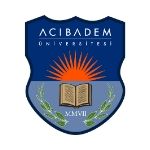 Acıbadem University School of Medicine was established in 2007 and accepted its first students into the academic year starting in 2009. The Medical Education Program was accredited by TEPDAD (The Association for the Evaluation and Accreditation of Medical Education Programs) in 2016. Currently, approximately 300 students study and 600 faculty members work at the medical school. The campus features a Center of Advanced Simulation and Education (CASE) while clinical practice takes place at two affiliated hospitals (Atakent and Maslak) and two Education and Research Districts of Ümraniye and Gaziosmanpaşa. Medium of instruction at the School of Medicine is English and the education is based on an integrated curriculum. The medical education program features three phases: Phase I (Year 1,2 and 3) is integrated Basic Sciences and Clinical Medicine, Phase II (Year 4 and 5) is Clinical Clerkships and Phase III (Year 6) is Internship. Phase I also includes Clinical Medicine and Professional Skills (CMPS) which is a program designed to be an initial introduction to medical professionalism providing students with relevant knowledge and skills. This program includes applied communication and clinical skills courses designed to help students with improving their skills prior to meeting patients during the Clinical Clerkship phase. This year, a unique integrated program is added to the Curriculum of Year 3: “Transition to Clinical Clerkships” (TCC). It starts after the end of the Final Exam and success in TCC will be required to start Phase II clerkships. Students develop their clinical skills by participating in programs at the Center of Advanced Simulation and Education (CASE). CASE, with its high standard and quality infrastructure and staff, has a leading role in the development of simulated clinical practice at the local and international levels. There is a wide range of simulated clinical methods that can be developed and applied in this Center.
Acıbadem University School of Medicine was established in 2007 and accepted its first students into the academic year starting in 2009. The Medical Education Program was accredited by TEPDAD (The Association for the Evaluation and Accreditation of Medical Education Programs) in 2016. Currently, approximately 300 students study and 600 faculty members work at the medical school. The campus features a Center of Advanced Simulation and Education (CASE) while clinical practice takes place at two affiliated hospitals (Atakent and Maslak) and two Education and Research Districts of Ümraniye and Gaziosmanpaşa. Medium of instruction at the School of Medicine is English and the education is based on an integrated curriculum. The medical education program features three phases: Phase I (Year 1,2 and 3) is integrated Basic Sciences and Clinical Medicine, Phase II (Year 4 and 5) is Clinical Clerkships and Phase III (Year 6) is Internship. Phase I also includes Clinical Medicine and Professional Skills (CMPS) which is a program designed to be an initial introduction to medical professionalism providing students with relevant knowledge and skills. This program includes applied communication and clinical skills courses designed to help students with improving their skills prior to meeting patients during the Clinical Clerkship phase. This year, a unique integrated program is added to the Curriculum of Year 3: “Transition to Clinical Clerkships” (TCC). It starts after the end of the Final Exam and success in TCC will be required to start Phase II clerkships. Students develop their clinical skills by participating in programs at the Center of Advanced Simulation and Education (CASE). CASE, with its high standard and quality infrastructure and staff, has a leading role in the development of simulated clinical practice at the local and international levels. There is a wide range of simulated clinical methods that can be developed and applied in this Center.
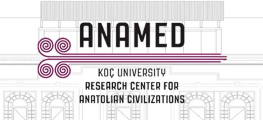 Established in 2005, ANAMED’s mission is to promote and produce cutting-edge scholarship contributing to the growing body of critical knowledge on Anatolia and its civilizations. The center aims to develop and facilitate research projects that are dedicated to the history, art, architecture, and archaeology of civilizations in Turkey through exhibitions, symposiums, fellowships, and publications. Located in the Beyoğlu district of Istanbul, ANAMED is near many research institutions, archives, and other scholarly facilities and thus serves as a convenient and comfortable locus for intensive study.
Established in 2005, ANAMED’s mission is to promote and produce cutting-edge scholarship contributing to the growing body of critical knowledge on Anatolia and its civilizations. The center aims to develop and facilitate research projects that are dedicated to the history, art, architecture, and archaeology of civilizations in Turkey through exhibitions, symposiums, fellowships, and publications. Located in the Beyoğlu district of Istanbul, ANAMED is near many research institutions, archives, and other scholarly facilities and thus serves as a convenient and comfortable locus for intensive study.
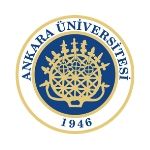 Ankara University Faculty of Medicine, Department of Pediatrics – Division of Pediatric Rheumatology is one of the leading Pediatric Rheumatology centers in Turkey. All types of pediatric rheumatologic diseases including JIA, vasculitis, SLE, dermatomyositis, autoinflammatory syndromes, and Behçet’s diseases are diagnosed, treated and followed in our outpatient and inpatient clinics. In addition, we have been working on various research projects and investigations especially about FMF and childhood vasculitis.
Ankara University Faculty of Medicine, Department of Pediatrics – Division of Pediatric Rheumatology is one of the leading Pediatric Rheumatology centers in Turkey. All types of pediatric rheumatologic diseases including JIA, vasculitis, SLE, dermatomyositis, autoinflammatory syndromes, and Behçet’s diseases are diagnosed, treated and followed in our outpatient and inpatient clinics. In addition, we have been working on various research projects and investigations especially about FMF and childhood vasculitis.
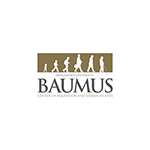 In the last fifty years migration and urban studies have become well-established research disciplines worldwide. Increased attention on these issues calls for a transition from mainstream methods of study to consider a plurality of subjects. Migration and urban studies are interdisciplinary in nature and require cross-faculty collaboration. In this sense, BAUMUS addresses the need for research centers that provide opportunities for developing collaborative research approaches in Turkey and worldwide. The goal of BAUMUS is to develop research models that use theories and data to suggest realistic proposals. Instead of limiting the scope of projects to produce theoretical knowledge, we aim to create applicable suggestions and practical solutions.
In the last fifty years migration and urban studies have become well-established research disciplines worldwide. Increased attention on these issues calls for a transition from mainstream methods of study to consider a plurality of subjects. Migration and urban studies are interdisciplinary in nature and require cross-faculty collaboration. In this sense, BAUMUS addresses the need for research centers that provide opportunities for developing collaborative research approaches in Turkey and worldwide. The goal of BAUMUS is to develop research models that use theories and data to suggest realistic proposals. Instead of limiting the scope of projects to produce theoretical knowledge, we aim to create applicable suggestions and practical solutions.
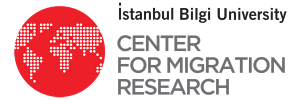 IIstanbul Bilgi University Center for Migration Research (BILGI-MIGRATION), established in 2002, has formulated its mission to support new research and joint projects, to strengthen institutional co-ordination among researchers through several networking activities, and to develop reliable data based on research findings that can contribute to realistic policy and decision-making processes in migration studies. BILGI-MIGRATION has been conducting research projects and activities on diverse forms of migration (urban-rural, labour, forced, international and seasonal) and related social issues with an interdisciplinary perspective. The Center functions as an information centre for students, researchers, academicians and NGO practitioners working or studying migration and social cohesion. Since its establishment, BILGI-MIGRATION has conducted research projects on several topics including among others the researches on Euro-Turks in Germany, France and Belgium, language acquisition in the context of migration and multilingualism, forced migration in Turkey, othering processes of youth and polarization in Turkey, seasonal migrant agricultural workers, child well-being, and child labour.
IIstanbul Bilgi University Center for Migration Research (BILGI-MIGRATION), established in 2002, has formulated its mission to support new research and joint projects, to strengthen institutional co-ordination among researchers through several networking activities, and to develop reliable data based on research findings that can contribute to realistic policy and decision-making processes in migration studies. BILGI-MIGRATION has been conducting research projects and activities on diverse forms of migration (urban-rural, labour, forced, international and seasonal) and related social issues with an interdisciplinary perspective. The Center functions as an information centre for students, researchers, academicians and NGO practitioners working or studying migration and social cohesion. Since its establishment, BILGI-MIGRATION has conducted research projects on several topics including among others the researches on Euro-Turks in Germany, France and Belgium, language acquisition in the context of migration and multilingualism, forced migration in Turkey, othering processes of youth and polarization in Turkey, seasonal migrant agricultural workers, child well-being, and child labour.
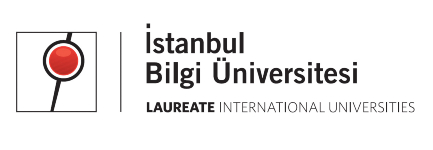 History Department of Istanbul Bilgi University is a prestigious department well-known for its broad-minded and critical perspective teaching courses on the history of the premodern and modern Ottoman Empire and Turkish Republic. Study Group on the Cultures of Turkey, on the other hand, is led by a colleague from the department and is composed of a small group running projects on cultural (confessional and especially linguistic) diversity in Turkey.
History Department of Istanbul Bilgi University is a prestigious department well-known for its broad-minded and critical perspective teaching courses on the history of the premodern and modern Ottoman Empire and Turkish Republic. Study Group on the Cultures of Turkey, on the other hand, is led by a colleague from the department and is composed of a small group running projects on cultural (confessional and especially linguistic) diversity in Turkey.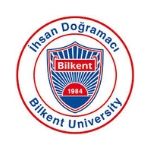 Bilkent University was founded on October 20, 1984, by İhsan Doğramacı, through the joint resolution of İhsan Doğramacı Education Foundation, İhsan Doğramacı Science and Research Foundation and İhsan Doğramacı Health Foundation. The establishment of this private university was later approved by an act of Parliament. The aim was to create a center of excellence in higher education and research. The name “Bilkent”‘ exemplifies the founder’s aim, since it is an acronym of “bilim kenti” in Turkish for “city of science and knowledge.”
Bilkent University was founded on October 20, 1984, by İhsan Doğramacı, through the joint resolution of İhsan Doğramacı Education Foundation, İhsan Doğramacı Science and Research Foundation and İhsan Doğramacı Health Foundation. The establishment of this private university was later approved by an act of Parliament. The aim was to create a center of excellence in higher education and research. The name “Bilkent”‘ exemplifies the founder’s aim, since it is an acronym of “bilim kenti” in Turkish for “city of science and knowledge.”
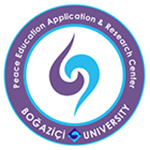 BUPERC was founded in 2007 as the first official Peace Education Center in a university setting. The mission of the center is to integrate transformative pedagogical approaches and socio-emotional skills based on the theoretical foundations of peace education to formal and non-formal educational settings. The center aims to realize its vision through collaborating with other centers at the university(ies), NGO’s, educational institutions and lately also the municipality and some business organizations. Planning and conducting interactive workshops with educators, NGO workers, and students, designing curricula based on the needs of the group of educators or the institution, making research in the area of conflict transformation and socio-emotional skills, organizing panels and lectures within the university are some of the activities of the center. The areas that the members of the peace education center concentrate on are conflict transformation, rights-based education, gender equality, non-violent communication, socio-emotional skills, arts-based approaches to conflict transformation, coexistence and diversity.
BUPERC was founded in 2007 as the first official Peace Education Center in a university setting. The mission of the center is to integrate transformative pedagogical approaches and socio-emotional skills based on the theoretical foundations of peace education to formal and non-formal educational settings. The center aims to realize its vision through collaborating with other centers at the university(ies), NGO’s, educational institutions and lately also the municipality and some business organizations. Planning and conducting interactive workshops with educators, NGO workers, and students, designing curricula based on the needs of the group of educators or the institution, making research in the area of conflict transformation and socio-emotional skills, organizing panels and lectures within the university are some of the activities of the center. The areas that the members of the peace education center concentrate on are conflict transformation, rights-based education, gender equality, non-violent communication, socio-emotional skills, arts-based approaches to conflict transformation, coexistence and diversity.
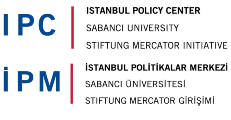 Istanbul Policy Center (IPC) is a global policy research institution that specializes in key social and political issues ranging from democratization to climate change, transatlantic relations to conflict resolution and mediation. IPC organizes and conducts its research under six main clusters:
Istanbul Policy Center (IPC) is a global policy research institution that specializes in key social and political issues ranging from democratization to climate change, transatlantic relations to conflict resolution and mediation. IPC organizes and conducts its research under six main clusters:
-The Istanbul Policy Center-Sabancı University-Stiftung Mercator Initiative
-Climate Change
-Democratization and Institutional Reform
-SHURA Energy Transition Center
-Urbanization and Local Governance
-Conflict Resolution and Mediation
Since 2001, IPC has provided decision-makers, opinion leaders, and other major stakeholders with objective analyses and innovative policy recommendations.
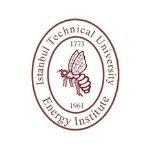 Energy Institute was established in 1961 on Istanbul Tecnichal University campus with the name of Nuclear Energy Institute, it was renamed as Energy Institute in 2003, to form a center for advanced research covering the other areas of energy. The aim of our institute is to make and encourage research and development projects in the broad range of energy science and engineering in Turkey. With 70 academic staff, 10 research groups, "Energy Science and Technology" MSc and Ph.D. programs, also “Radiation Science and Technology” Msc program, Energy Institute provides education, research and collaborative opportunities with partner organizations and individuals.
Energy Institute was established in 1961 on Istanbul Tecnichal University campus with the name of Nuclear Energy Institute, it was renamed as Energy Institute in 2003, to form a center for advanced research covering the other areas of energy. The aim of our institute is to make and encourage research and development projects in the broad range of energy science and engineering in Turkey. With 70 academic staff, 10 research groups, "Energy Science and Technology" MSc and Ph.D. programs, also “Radiation Science and Technology” Msc program, Energy Institute provides education, research and collaborative opportunities with partner organizations and individuals.
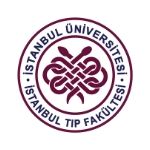 Istanbul Universtiy – Cerrahpaşa, Department of Internal Medicine, Division of Rheumatology is one of the three largest University hospitals in Istanbul. In addition to educational activities, it is a tertiary referral clinic experienced in clinical research and care of patients with rheumatic diseases, with special in Familial Mediterranean Fever and Behçet’s syndrome
Istanbul Universtiy – Cerrahpaşa, Department of Internal Medicine, Division of Rheumatology is one of the three largest University hospitals in Istanbul. In addition to educational activities, it is a tertiary referral clinic experienced in clinical research and care of patients with rheumatic diseases, with special in Familial Mediterranean Fever and Behçet’s syndrome
University is one of the leading Pediatric Rheumatology centers in Turkey. All types of pediatric rheumatologic diseases including JIA, vasculitis, SLE, dermatomyositis, autoinflammatory syndromes, and Behçet’s diseases are diagnosed, treated and followed in our outpatient and inpatient clinics. In addition, we have been working on various research projects and investigations especially about FMF and childhood vasculitis.
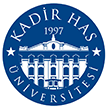 The Center for International and European Studies (CIES) at Kadir Has University was established in 2004 as the Center for European Union Studies to study Turkey’s European Union accession process. Since September 2010, it has been transformed by widening its focus in order to pursue applied, policy-oriented research, build capacity and to promote knowledge on both horizontal and geographical issues and concerns. Our objectives are to increase understanding, raise awareness, promote debate and enhance cooperation in our focus areas including foreign policy, security, regional cooperation, governance, youth leadership, and sustainable development, inter alia, with a wide geographical focus on the European Union, its Eastern, South-eastern and Southern Neighbourhoods, Turkey, the United States, and Asia. Our team includes an experienced director, 3 senior associates, 5 research associates, a project coordinator, and an office administrator.
The Center for International and European Studies (CIES) at Kadir Has University was established in 2004 as the Center for European Union Studies to study Turkey’s European Union accession process. Since September 2010, it has been transformed by widening its focus in order to pursue applied, policy-oriented research, build capacity and to promote knowledge on both horizontal and geographical issues and concerns. Our objectives are to increase understanding, raise awareness, promote debate and enhance cooperation in our focus areas including foreign policy, security, regional cooperation, governance, youth leadership, and sustainable development, inter alia, with a wide geographical focus on the European Union, its Eastern, South-eastern and Southern Neighbourhoods, Turkey, the United States, and Asia. Our team includes an experienced director, 3 senior associates, 5 research associates, a project coordinator, and an office administrator.
 Koç University was founded in 1993 as a non-profit private university in Istanbul, Turkey. Since its establishment, Koç University has become one of the leading universities in Turkey, distinguished by notable contributions to the elevation of education, knowledge and service both domestically and beyond.
Koç University was founded in 1993 as a non-profit private university in Istanbul, Turkey. Since its establishment, Koç University has become one of the leading universities in Turkey, distinguished by notable contributions to the elevation of education, knowledge and service both domestically and beyond.
The principle mission of Koç University is to cultivate Turkey’s most competent graduates, well-rounded adults who are internationally qualified; who can think creatively, independently and objectively; and who are confident leaders. Concurrently, research conducted at Koç University contributes to scientific development on an international scale and bolsters technological, economic and social development. Koç University consistently strives to advance knowledge through its efforts and to serve Turkey and humanity as a model of institutional excellence.
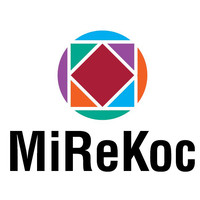 Migration Research Center at Koç University (MiReKoc) aims to advance the state of the art in migration research through original and innovative scholarship, academic collaboration, and dialogue between researchers, policy-makers, international organizations and civil society actors. Based in Istanbul, MiReKoc provides a unique, institutionalized hub for migration research with a focus on Turkey and its close environment, with the objective of increasing research capacity and encouraging inter-institutional dialogue on the topic of migration.
Migration Research Center at Koç University (MiReKoc) aims to advance the state of the art in migration research through original and innovative scholarship, academic collaboration, and dialogue between researchers, policy-makers, international organizations and civil society actors. Based in Istanbul, MiReKoc provides a unique, institutionalized hub for migration research with a focus on Turkey and its close environment, with the objective of increasing research capacity and encouraging inter-institutional dialogue on the topic of migration.
The Migration Research Center at Koç University (MiReKoc) was founded in Istanbul in 2004 to contribute to developing the field of migration studies in Turkey and beyond. In that endeavor, the Center initially focused on funding research projects on migration issues in Turkey and Turkish migrants abroad. Between 2004-2010, MiReKoc in conjunction with Koç University (Istanbul) and the Foundation for Population, Migration and Environment (PME, Zurich), provided grants for a total of 44 research projects exploring various migration issues.
Soon after its establishment, MiReKoc also began to conduct its own research with funding provided by other partner organizations such as the German Marshall Fund and the European Commission, UNHCR and IOM. Earlier projects considered a wide array of topics such as the causes and consequences of irregular migration and refugee issues, international migration and transnationalism, the integration of migrants into receiving settings, the brain drain, forced migration, and the migration-citizenship nexus. While MiReKoc research initially focused exclusively on the Turkish context, this scope has gradually expanded to other countries and regions over the years with theoretical and empirical contributions to the larger migration literature. The Center advocates for multidisciplinary and interdisciplinary research on various aspects of migration.
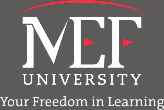 Design is a powerful tool we use to transform our environment, and hopefully, make it a better place. More than ever as designers, but also as citizens of this world, we are aiming to design artifacts, buildings and cities that not only reflect our dreams, creativity, ambitions as individuals and as societies but are also respectful towards our world and its inhabitants. Our program emphasizes the responsibility of the designers for their impact on the environment. Our graduates will contribute to a new understanding of design based on an ethically responsible approach towards the environment and thus, will become involved actively in the creation of a better world. We envision a future where our graduates lead the way to developing more environmentally resilient ways of designing not only in Turkey but also all around the world. Our programs are shaped around the main idea that design is about creating. Studios in our curricula have a higher credit and hour per week in comparison to similar programs. We believe that the studio, where our students learn by doing and experimenting, is the center of all design education that is supported by integrated theoretical courses. In order to achieve that goal, our studios are open to the use of the students 24 hours every day. At FADA, we have developed a special program that makes creating and making beyond the boundaries of our studios. Our Design-build-studio is a summer program where our students design and build projects for schools and communities. The ‘Bridge of Dreams’ that was designed and built during the 2015 program has been published in professional architectural magazines and has also received a number of awards. Building on the success of the bridge, our students are designing and building five projects in different schools in Istanbul and Aydın. Our design-build program gives our students the experience of not only designing but also building and realizing their ideas. Also, they experience the satisfaction of reaching out and helping people through design.
Design is a powerful tool we use to transform our environment, and hopefully, make it a better place. More than ever as designers, but also as citizens of this world, we are aiming to design artifacts, buildings and cities that not only reflect our dreams, creativity, ambitions as individuals and as societies but are also respectful towards our world and its inhabitants. Our program emphasizes the responsibility of the designers for their impact on the environment. Our graduates will contribute to a new understanding of design based on an ethically responsible approach towards the environment and thus, will become involved actively in the creation of a better world. We envision a future where our graduates lead the way to developing more environmentally resilient ways of designing not only in Turkey but also all around the world. Our programs are shaped around the main idea that design is about creating. Studios in our curricula have a higher credit and hour per week in comparison to similar programs. We believe that the studio, where our students learn by doing and experimenting, is the center of all design education that is supported by integrated theoretical courses. In order to achieve that goal, our studios are open to the use of the students 24 hours every day. At FADA, we have developed a special program that makes creating and making beyond the boundaries of our studios. Our Design-build-studio is a summer program where our students design and build projects for schools and communities. The ‘Bridge of Dreams’ that was designed and built during the 2015 program has been published in professional architectural magazines and has also received a number of awards. Building on the success of the bridge, our students are designing and building five projects in different schools in Istanbul and Aydın. Our design-build program gives our students the experience of not only designing but also building and realizing their ideas. Also, they experience the satisfaction of reaching out and helping people through design.
 Sabanci University Gender and Women’s Studies Center of Excellence (SU Gender) works to raise awareness about gender both within and beyond the university. Our activities are geared towards eliminating all forms of discrimination, including gender identity, sexual orientation, language, ethnic background, class and faith; creating discussion and sharing environments that support pluralism, creativity, equality and solidarity; making academic knowledge available and accessible for all, and strengthening the flow and exchange of knowledge between the worlds of academia, civil society, art, politics, and everyday life. The main principles SU Gender embraces are gender equality, struggle against all forms of discrimination, pluralism, creativity, equality, solidarity, collective work, transparency, multivocality, open communication, making academic knowledge available and accessible for all. Our 4 main programs – Purple Certificate, Curious Steps, Transformative Activism, and Gender Equality – transform, educate, empower and inspire us all. Each year we give out grants to gender-related research and awards to articles in gender studies, organize an international conference, gender awareness, and education activities for civil society organizations, foundations, associations, and companies.SU Gender is an interdisciplinary research center that supports researchers in the fields of anthropology, geography, literature, psychology, political science, and sociology, as well as the STEM fields (science, technology, engineering, and math). The center conducts gender-based research in a number of areas, develops new research projects with both national- and international-level partners, and organizes training and awareness-raising activities for young researchers.
Sabanci University Gender and Women’s Studies Center of Excellence (SU Gender) works to raise awareness about gender both within and beyond the university. Our activities are geared towards eliminating all forms of discrimination, including gender identity, sexual orientation, language, ethnic background, class and faith; creating discussion and sharing environments that support pluralism, creativity, equality and solidarity; making academic knowledge available and accessible for all, and strengthening the flow and exchange of knowledge between the worlds of academia, civil society, art, politics, and everyday life. The main principles SU Gender embraces are gender equality, struggle against all forms of discrimination, pluralism, creativity, equality, solidarity, collective work, transparency, multivocality, open communication, making academic knowledge available and accessible for all. Our 4 main programs – Purple Certificate, Curious Steps, Transformative Activism, and Gender Equality – transform, educate, empower and inspire us all. Each year we give out grants to gender-related research and awards to articles in gender studies, organize an international conference, gender awareness, and education activities for civil society organizations, foundations, associations, and companies.SU Gender is an interdisciplinary research center that supports researchers in the fields of anthropology, geography, literature, psychology, political science, and sociology, as well as the STEM fields (science, technology, engineering, and math). The center conducts gender-based research in a number of areas, develops new research projects with both national- and international-level partners, and organizes training and awareness-raising activities for young researchers.
 İstanbul Şehir University Center for Modern Turkish Studies supports the creation of knowledge within the context of social sciences and humanities by its high-quality research dealing with the issues of our country by focusing on the last two centuries.The Center aims to be a resource for reliable knowledge, the fruit of independent research in order to call for the attention of the international community of scholars to the field of Turkish Studies. Its major goal is to become a center of attraction by establishing an international network of researchers and scholars from different disciplines specializing in Turkey.The Center runs an M.S. Program on Modern Turkish Studies within the GraduateSchool of Social Sciences and Humanities since and organizes national and international seminars and conferences and publishes reports and papers.Our program is supported by more than 20 full-time faculty members and instructors from Political Science, International Relations, Sociology, History, Law, Literature, Communication, and Islamic Studies as well as faculty members and experts from other fields and institutions. The language of instruction is English. We have 30 graduate students. Additionally, the Center for Modern Turkish Studies organizes short-term special programs and summer schools providing analytical and in-depth knowledge about Turkey to those who work at the international institutions and think tanks and to the policymakers.
İstanbul Şehir University Center for Modern Turkish Studies supports the creation of knowledge within the context of social sciences and humanities by its high-quality research dealing with the issues of our country by focusing on the last two centuries.The Center aims to be a resource for reliable knowledge, the fruit of independent research in order to call for the attention of the international community of scholars to the field of Turkish Studies. Its major goal is to become a center of attraction by establishing an international network of researchers and scholars from different disciplines specializing in Turkey.The Center runs an M.S. Program on Modern Turkish Studies within the GraduateSchool of Social Sciences and Humanities since and organizes national and international seminars and conferences and publishes reports and papers.Our program is supported by more than 20 full-time faculty members and instructors from Political Science, International Relations, Sociology, History, Law, Literature, Communication, and Islamic Studies as well as faculty members and experts from other fields and institutions. The language of instruction is English. We have 30 graduate students. Additionally, the Center for Modern Turkish Studies organizes short-term special programs and summer schools providing analytical and in-depth knowledge about Turkey to those who work at the international institutions and think tanks and to the policymakers.
| Media |
 IPS Communication Foundation is an Istanbul-based non-profit aiming to contribute to the transformation of Turkish media towards rights-based journalistic values and to become a reliable outlet of independent news with a rights-based, multi-voice approach. Recognizing that the Freedom of Expression is a crucial pillar for journalism to be independent, competent and in line with journalistic values, it works for the realization of full enjoyment of the Freedom of Expression in Turkey and elsewhere. IPS concentrates its work in producing and promoting independent news that puts rights in its core, reflecting the voice of the rights movement as a whole, and raising and reinforcing awareness for rights among the public and provide in depth information.In the light of this goal, IPS sets its vision as a free, critical and pluralistic media in Turkey that respect people’s differences and upholds their rights.The unique contribution of IPS in the realization of its vision with its expertise and strengths is to ensure that the voices of the ignored and silenced are increasingly heard in public debate through provision of unbiased, inclusive and actionable news reporting as well as experience and knowledge sharing.www. bianet.org is the online platform to distribute and share news reporting from a rights-based perspective since the year 2001. It is the most visible work of IPS with daily production of news in three languages (Turkish, Kurdish, English) as well as release of periodic reports in the fields of Freedom of Expression and Male Violence in Turkey.
IPS Communication Foundation is an Istanbul-based non-profit aiming to contribute to the transformation of Turkish media towards rights-based journalistic values and to become a reliable outlet of independent news with a rights-based, multi-voice approach. Recognizing that the Freedom of Expression is a crucial pillar for journalism to be independent, competent and in line with journalistic values, it works for the realization of full enjoyment of the Freedom of Expression in Turkey and elsewhere. IPS concentrates its work in producing and promoting independent news that puts rights in its core, reflecting the voice of the rights movement as a whole, and raising and reinforcing awareness for rights among the public and provide in depth information.In the light of this goal, IPS sets its vision as a free, critical and pluralistic media in Turkey that respect people’s differences and upholds their rights.The unique contribution of IPS in the realization of its vision with its expertise and strengths is to ensure that the voices of the ignored and silenced are increasingly heard in public debate through provision of unbiased, inclusive and actionable news reporting as well as experience and knowledge sharing.www. bianet.org is the online platform to distribute and share news reporting from a rights-based perspective since the year 2001. It is the most visible work of IPS with daily production of news in three languages (Turkish, Kurdish, English) as well as release of periodic reports in the fields of Freedom of Expression and Male Violence in Turkey.
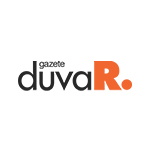 Gazete Duvar was founded on 8 August 2016 with the purpose of providing readers with a decent newspaper that is published online in line with universally accepted principles of good journalism and publishing ethics which is free of all political or economic concerns. Indeed, since it was established little over 3 years ago, Gazete Duvar has already reached some magnificent figures, still dreamed of by most major traditional media establishments, by having been visited by some 200K single users on a daily basis with a total 1 million page views. What’s better, the overall Internet traffic figures of Gazete Duvar are steadily on the increase without any decline whatsoever. In times of general and local elections, as well as during some important events, those numbers are raised up to 400K single users with more than 1.5 million page views.
Gazete Duvar was founded on 8 August 2016 with the purpose of providing readers with a decent newspaper that is published online in line with universally accepted principles of good journalism and publishing ethics which is free of all political or economic concerns. Indeed, since it was established little over 3 years ago, Gazete Duvar has already reached some magnificent figures, still dreamed of by most major traditional media establishments, by having been visited by some 200K single users on a daily basis with a total 1 million page views. What’s better, the overall Internet traffic figures of Gazete Duvar are steadily on the increase without any decline whatsoever. In times of general and local elections, as well as during some important events, those numbers are raised up to 400K single users with more than 1.5 million page views.Having initially set off with a team of 14 persons, Gazete Duvar is now supporting a total of 26 persons. In the beginning, there were 30 columnists, now more than 100 authors are contributing to the content. Gazete Duvar has managed to become “a bridge”, as to say, between the readers and the experts, who were eager to properly inform the general public even though they neither had any political motivations nor economic expectations. Most of the columnists were the people known as ‘Academics for Peace’ who were unlawfully expelled from their duties at universities by Presidential Decrees.
The Evrensel Newspaper is the daily newspaper of the working class and oppressed people of Turkey, which has been published for 25 years. In 2017 we started an online English version (evrensel.net/daily).
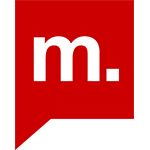 Medyascope is an online news channel, broadcasting 10 hours live per day and 7 days a week. It is an independent media outlet currently employing 40 journalists with offices in Istanbul, Ankara and Diyarbakır. Founded in 2015 by journalist Ruşen Çakır, Medyascope does journalism compatible with universal standards and currently fills the void created by the absence of a mainstream media.
Medyascope is an online news channel, broadcasting 10 hours live per day and 7 days a week. It is an independent media outlet currently employing 40 journalists with offices in Istanbul, Ankara and Diyarbakır. Founded in 2015 by journalist Ruşen Çakır, Medyascope does journalism compatible with universal standards and currently fills the void created by the absence of a mainstream media.
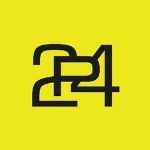 P24 is an Istanbul-based non-governmental organization established in 2013 to support media independence. Among its founders are three former editors-in-chief of major Turkish newspapers. This initial mission to support journalistic integrity evolved into a much broader portfolio of projects designed to encourage and defend free expression in Turkey at a critical time when public space has contracted.
P24 is an Istanbul-based non-governmental organization established in 2013 to support media independence. Among its founders are three former editors-in-chief of major Turkish newspapers. This initial mission to support journalistic integrity evolved into a much broader portfolio of projects designed to encourage and defend free expression in Turkey at a critical time when public space has contracted.
P24 creates case law in its defence of journalists in both national and European courts but also defends free expression through a broad-ranging advocacy campaign (in partnership with Article 19) called Expression Interrupted. It has built an (EU funded) nation-wide anti-censorship network to provide alternatives and create solidarity among those who face gender, ethnic, or ideological discrimination. However, P24 interprets campaigning as not just protesting injustices, but coming up with proactive strategies to “use and not lose” free expression. Thus, it was a runner-up in the 2019 Index on Censorship advocacy award but also in the innovation category of the European Press Prize for content it commissioned. Many of P24’s activities are designed to mentor talent and give quality journalists and writers opportunities to exercise their craft. It also mounts a comprehensive social media campaign. One of its most successful ventures has been K24 – an online literary review, weekly updated with dossiers organized around a variety of themes.
P24 has been awarded the Norwegian Sjur Lindebrække Prize for Human Rights and Democracy (2018) and the Geneva-based PEC award for “exceptional courage in fighting for press freedom (2017).
| Information and Communication Technologies |
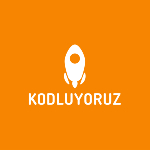 Kodluyoruz is a social enterprise working to make Turkey a talent hub in technology sector. Our major programs and projects are:
Kodluyoruz is a social enterprise working to make Turkey a talent hub in technology sector. Our major programs and projects are:
-Kodluyoruz Academy provides boot camps (3-4 month technical and soft skills training) that prepare driven, unemployed/underemployed young people, ages 18-29, for employment in high-value technology fields. We work in around 10 cities across Turkey and train hundreds of new developers for the high-value technology sector annually in web development, mobile development, and data science & machine learning.
-Alumni Club is a lifelong learning community for our graduates, bringing youth together to find solutions to their own problems. The youth themselves organize study groups, sector talks and workshops for their career development.
-Kodluyoruz Junior provides STEM education for younger generation and women. We work with BSH in Cerkezkoy to educate 1,000 children from public schools every year. EMpower Foundation also supports us to train youth 14-16 in public schools and vocational schools.
| Art and Culture |
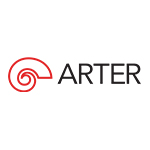 From 2010 to 2018, at its building on Istiklal Street, Istanbul’s main pedestrian artery for culture and arts, Arter presented 35 solo and group exhibitions to date with accompanying publications, talks, performances and workshops; and provided support for the production of 183 artworks in the framework of its programme. At its new building designed by Grimshaw Architects, London, Arter presents exhibitions from but not limited to its collection as well as performances and events across disciplines, expanding the range of its programmes.
From 2010 to 2018, at its building on Istiklal Street, Istanbul’s main pedestrian artery for culture and arts, Arter presented 35 solo and group exhibitions to date with accompanying publications, talks, performances and workshops; and provided support for the production of 183 artworks in the framework of its programme. At its new building designed by Grimshaw Architects, London, Arter presents exhibitions from but not limited to its collection as well as performances and events across disciplines, expanding the range of its programmes.
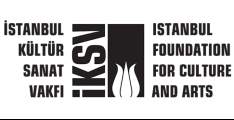 Istanbul Foundation for Culture and Arts (İKSV) is a non-profit cultural institution. Since 1973, the Foundation continues its efforts to enrich Istanbul’s cultural and artistic life. İKSV regularly organises the Istanbul Festivals of Music, Film, Theatre and Jazz, the Istanbul Biennial, the Istanbul Design Biennial, Leyla Gencer Voice Competition, autumn film week Filmekimi and realises one-off events throughout the year. The Foundation hosts cultural and artistic events from various disciplines at its performance venue Salon İKSV, located at the Nejat Eczacıbaşı Building, and offers creative events programme for children and youngsters at İKSV Alt Kat.
Istanbul Foundation for Culture and Arts (İKSV) is a non-profit cultural institution. Since 1973, the Foundation continues its efforts to enrich Istanbul’s cultural and artistic life. İKSV regularly organises the Istanbul Festivals of Music, Film, Theatre and Jazz, the Istanbul Biennial, the Istanbul Design Biennial, Leyla Gencer Voice Competition, autumn film week Filmekimi and realises one-off events throughout the year. The Foundation hosts cultural and artistic events from various disciplines at its performance venue Salon İKSV, located at the Nejat Eczacıbaşı Building, and offers creative events programme for children and youngsters at İKSV Alt Kat.
İKSV organises the Pavilion of Turkey at the International Art and Architecture Exhibitions of la Biennale di Venezia, conducts studies and drafts reports with the aim of contributing to cultural policy development, and supports artistic and cultural production through presenting awards at its festivals, commissioning works, taking part in international and local co-productions and coordinating an artist residency programme at Cité Internationale des Arts in France, as well as the annual Aydın Gün Encouragement, Talât Sait Halman Translation, and Gülriz Sururi-Engin Cezzar Theatre Encouragement Awards.
İKSV is a member of the General Assembly of the Turkish National Commission for UNESCO, since 2018.
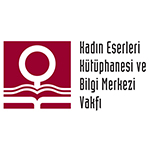 The Women’s Library and Information Centre Foundation (WLICF) is the first and only women-centred library and archive in Turkey. It was founded in Istanbul by Aslı Davaz, Füsun Akatlı, Füsun Ertuğ, Jale Baysal, and Şirin Tekeli; and opened to the public on 14 April, 1990. At that time, the women’s movement in Turkey had already gathered a wealth of documents related to the struggle for women’s rights. These documents concerned issues such as equal pay for equal work, equality in civil rights, ending all kinds of violence against women and equal representation in parliament. The collections of the Women’s Library in Istanbul are organized in sixteen main sections: Women’s Private Papers, Women’s Oral History, Women’s Organizations, Ephemera, Women Writers, Women Artists, Visual Documents, Audio Material, Posters, Art Collections, Newspaper Clippings, Books, Periodicals, Rare Material, Thesis-Dissertations and Articles. These documents are unique and cannot be found elsewhere. Because libraries and archives centres in general do not have an acquisition policy regarding the women’s movement documents in Turkey, large quantities of ephemeral material regarding the women’s movement is only kept by the Women’s Library. The institution frames and constitutes the memory of women and the women’s movement, and the growth of our collection is parallel to the development of the feminist consciousness in Turkey.
The Women’s Library and Information Centre Foundation (WLICF) is the first and only women-centred library and archive in Turkey. It was founded in Istanbul by Aslı Davaz, Füsun Akatlı, Füsun Ertuğ, Jale Baysal, and Şirin Tekeli; and opened to the public on 14 April, 1990. At that time, the women’s movement in Turkey had already gathered a wealth of documents related to the struggle for women’s rights. These documents concerned issues such as equal pay for equal work, equality in civil rights, ending all kinds of violence against women and equal representation in parliament. The collections of the Women’s Library in Istanbul are organized in sixteen main sections: Women’s Private Papers, Women’s Oral History, Women’s Organizations, Ephemera, Women Writers, Women Artists, Visual Documents, Audio Material, Posters, Art Collections, Newspaper Clippings, Books, Periodicals, Rare Material, Thesis-Dissertations and Articles. These documents are unique and cannot be found elsewhere. Because libraries and archives centres in general do not have an acquisition policy regarding the women’s movement documents in Turkey, large quantities of ephemeral material regarding the women’s movement is only kept by the Women’s Library. The institution frames and constitutes the memory of women and the women’s movement, and the growth of our collection is parallel to the development of the feminist consciousness in Turkey.
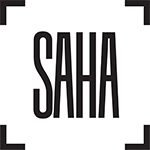 Founded as an association in 2011, SAHA—Supporting Contemporary Art from Turkey has a mission to support and to increase the visibility of contemporary art from Turkey internationally. Collaborating with museums, biennials, and other not-for-profit art institutions around the world, SAHA helps with the commissions, new productions and programs by artists and curators from Turkey. SAHA has special grants for independent art initiatives, art writing and publications; and develops sustainable partnerships with international artist-in-residency and curatorial programs. SAHA, launched SAHA Studio in August 2019 in Beyoglu, Istanbul. SAHA Studio is a co-working space and residency program dedicated to research, production, collaboration and networking. SAHA Studio provides emerging to mid-career artists from Turkey with a studio and a coworking space for a period of six months, curatorial support, honorarium and a stipend for living expenses, research and production. SAHA Studio’s program includes regular studio visits by art critics, conversations with artists and academics, collection and exhibition tours with curators, study trips abroad, and meetings for professional development and networking. SAHA also hosts international curators and researchers within the scope of SAHA’s curatorial program.
Founded as an association in 2011, SAHA—Supporting Contemporary Art from Turkey has a mission to support and to increase the visibility of contemporary art from Turkey internationally. Collaborating with museums, biennials, and other not-for-profit art institutions around the world, SAHA helps with the commissions, new productions and programs by artists and curators from Turkey. SAHA has special grants for independent art initiatives, art writing and publications; and develops sustainable partnerships with international artist-in-residency and curatorial programs. SAHA, launched SAHA Studio in August 2019 in Beyoglu, Istanbul. SAHA Studio is a co-working space and residency program dedicated to research, production, collaboration and networking. SAHA Studio provides emerging to mid-career artists from Turkey with a studio and a coworking space for a period of six months, curatorial support, honorarium and a stipend for living expenses, research and production. SAHA Studio’s program includes regular studio visits by art critics, conversations with artists and academics, collection and exhibition tours with curators, study trips abroad, and meetings for professional development and networking. SAHA also hosts international curators and researchers within the scope of SAHA’s curatorial program.
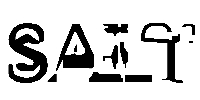 SALT is a cultural institution in public service producing research-based exhibitions, publications, web and digitization projects, as well as developing programs including screenings, conferences and workshops in Istanbul and Ankara. Aiming to offer an environment for debate and co-learning with its users and collaborators, SALT does not engage in formal arguments or favor one period, discipline or object-based practice over another.
SALT is a cultural institution in public service producing research-based exhibitions, publications, web and digitization projects, as well as developing programs including screenings, conferences and workshops in Istanbul and Ankara. Aiming to offer an environment for debate and co-learning with its users and collaborators, SALT does not engage in formal arguments or favor one period, discipline or object-based practice over another.
SALT focuses on art, architecture and design, and social and economic histories. The research projects, visual presentations, international publications and local archival collections at SALT expand beyond linear chronologies, medium-based questions, and the traditional separation of fields of study.
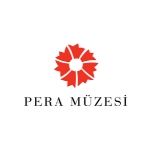 Inaugurated on 8 June 2005, Pera Museum is a private museum founded by the Suna and İnan Kıraç Foundation. Through Suna and İnan Kıraç Foundation's three permanent collections, “Orientalist Paintings”, “Anatolian Weights and Measures”, and “Kütahya Tiles and Ceramics”, Pera Museum seeks not only to diffuse the aesthetic beauty of these collections but also to create dialogue with the public concerning the values and identities that they encompass. Utilizing the full scope of innovative methods, including exhibitions, publications, audio-visual events, learning activities, and academic works, the objective of transmitting the beauty and importance of these works to future generations is realised.
Inaugurated on 8 June 2005, Pera Museum is a private museum founded by the Suna and İnan Kıraç Foundation. Through Suna and İnan Kıraç Foundation's three permanent collections, “Orientalist Paintings”, “Anatolian Weights and Measures”, and “Kütahya Tiles and Ceramics”, Pera Museum seeks not only to diffuse the aesthetic beauty of these collections but also to create dialogue with the public concerning the values and identities that they encompass. Utilizing the full scope of innovative methods, including exhibitions, publications, audio-visual events, learning activities, and academic works, the objective of transmitting the beauty and importance of these works to future generations is realised.
All of the Museum’s exhibitions are accompanied by books, catalogues, audio-visual events in addition to learning programs. Parallel to its seasonal programs and events, Pera Film offers visitors and film buffs a wide range of screenings that extend from classics and independent movies to animated films and documentaries. Pera Film also hosts special shows that directly correlate with the temporary exhibitions’ themes.
| Civil Society Organisations, Think-tanks, Research Institutions |
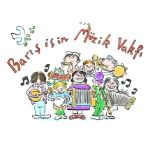 Barış İçin Müzik Vakfı (Music for Peace Foundation) is a free music education programme for school-age children and young people, based in Edirnekapı, one of Istanbul’s most disadvantaged inner-city neighbourhoods. Working with the children and young people aged between 7-25, the programme provides facilities, instruments, and teachers for music education and performance. The programme has three-level orchestras (beginner, intermediate children orchestra, advanced youth orchestra), vocal ensembles (choir, vocal quartet, and quintet), and an accordion ensemble. The foundation’s ultimate goal is to improve social cohesion and peace through music, and it draws on the principle, set down in the UN Convention on the Rights of the Child, that every child has a right to participate in the creation of art.
Barış İçin Müzik Vakfı (Music for Peace Foundation) is a free music education programme for school-age children and young people, based in Edirnekapı, one of Istanbul’s most disadvantaged inner-city neighbourhoods. Working with the children and young people aged between 7-25, the programme provides facilities, instruments, and teachers for music education and performance. The programme has three-level orchestras (beginner, intermediate children orchestra, advanced youth orchestra), vocal ensembles (choir, vocal quartet, and quintet), and an accordion ensemble. The foundation’s ultimate goal is to improve social cohesion and peace through music, and it draws on the principle, set down in the UN Convention on the Rights of the Child, that every child has a right to participate in the creation of art.
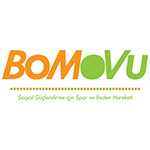 The Network of Sport and Body Movement for Vulnerable Groups (BoMoVu) is a collective of practitioners of sports, dance, and performing arts who want to dedicate their professional talents for body movement to the field of social work. Springing from the idea that someone who has acquired well-being and mental strengthening from their own physical experience is best able to share and transmit this well-being, we set up this network to build the bridges between sport/body movement practitioners and vulnerable groups in Turkey. As BoMoVu, we believe that access to physical activities is a right and should not be considered as a luxury reserved for the affluent or physically abled.
The Network of Sport and Body Movement for Vulnerable Groups (BoMoVu) is a collective of practitioners of sports, dance, and performing arts who want to dedicate their professional talents for body movement to the field of social work. Springing from the idea that someone who has acquired well-being and mental strengthening from their own physical experience is best able to share and transmit this well-being, we set up this network to build the bridges between sport/body movement practitioners and vulnerable groups in Turkey. As BoMoVu, we believe that access to physical activities is a right and should not be considered as a luxury reserved for the affluent or physically abled.
We design short and long-term physical training programs to help people integrate into normal life. BoMoVu members develop their own workshops for the target group they feel qualified to train. BoMoVu then helps members to reach out to the target group. BoMoVu also acts as a skill-developing center as it conducts seminars designed to help sports practitioners adapt their knowledge to the needs of vulnerable groups and accompany them in the development of holistic social programs.
![]() ERG, is an independent and not-for-profit think-and-do-tank that contributes to systemic transformation in education for the development of the child and society through sound evidence, constructive dialogue, and innovative/critical thinking. Evidence-based decision-making processes in education concerning stakeholder engagement and ensuring the access of all children to quality education are the key elements of systemic transformation.
ERG, is an independent and not-for-profit think-and-do-tank that contributes to systemic transformation in education for the development of the child and society through sound evidence, constructive dialogue, and innovative/critical thinking. Evidence-based decision-making processes in education concerning stakeholder engagement and ensuring the access of all children to quality education are the key elements of systemic transformation.
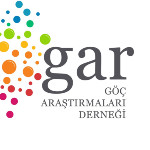 GAR is founded on September 21, 2017 with the aim of conducting research on migration, taking part in the multidisciplinary migration research, supporting migration research and researchers, contributing to the dissemination of knowledge produced in these studies, and enabling a professional solidarity, communication, collaboration and interaction among the migration scholars. We also aim at providing solutions to scientific, institutional, and ethical problems that the migration researchers face. Last but not the least, we aim to contribute in raising public awareness regarding the problems un/documented migrants, asylum seekers and refugees confront.
GAR is founded on September 21, 2017 with the aim of conducting research on migration, taking part in the multidisciplinary migration research, supporting migration research and researchers, contributing to the dissemination of knowledge produced in these studies, and enabling a professional solidarity, communication, collaboration and interaction among the migration scholars. We also aim at providing solutions to scientific, institutional, and ethical problems that the migration researchers face. Last but not the least, we aim to contribute in raising public awareness regarding the problems un/documented migrants, asylum seekers and refugees confront.
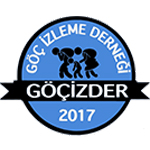 Migration Monitoring Association (MMA) is a civil society organization that is specializing in forced migration, internal displacement, and human rights. The association aims to support people who have been victims of human rights violations in their search for justice, to strengthen social memory about these violations and to disseminate the truth about grave human rights violations to the society at large for the purpose of building a democratic and just future of peace, to support the recognition and reparation of rights violations, to ensure respect, protection and promotion of human rights within the framework of national and international law. Also, it aims to contribute to social peace and democracy through enhancing social memory as well as aims to research social, economic, cultural, demographic, and ecological reasons for migration.
Migration Monitoring Association (MMA) is a civil society organization that is specializing in forced migration, internal displacement, and human rights. The association aims to support people who have been victims of human rights violations in their search for justice, to strengthen social memory about these violations and to disseminate the truth about grave human rights violations to the society at large for the purpose of building a democratic and just future of peace, to support the recognition and reparation of rights violations, to ensure respect, protection and promotion of human rights within the framework of national and international law. Also, it aims to contribute to social peace and democracy through enhancing social memory as well as aims to research social, economic, cultural, demographic, and ecological reasons for migration.
 Good4Trust is a community platform bringing together ecologically and socially just producers and prosumers. Prosumers come together around a basic ethical tenet “the golden rule” and share on the platform their good deeds. These good deeds may include charity, volunteering, goods, and services they bought on the Good4Trust online bazaar to support ecologically and socially just production. The relationship is already deepening and circularity is forming to create a prosumer economy. The platform’s software to structure the economy is open-source and is available to be licensed to start Good4Trust anywhere on the planet.
Good4Trust is a community platform bringing together ecologically and socially just producers and prosumers. Prosumers come together around a basic ethical tenet “the golden rule” and share on the platform their good deeds. These good deeds may include charity, volunteering, goods, and services they bought on the Good4Trust online bazaar to support ecologically and socially just production. The relationship is already deepening and circularity is forming to create a prosumer economy. The platform’s software to structure the economy is open-source and is available to be licensed to start Good4Trust anywhere on the planet.
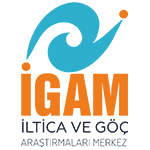 IGAM, The Research Centre on Asylum and Migration, was founded in 2013 by a group of academics, researchers, journalists, and humanitarian workers, as an independent and non-profit association to fill the void of there not being any independent research center in Turkey dealing with asylum and migration. The purpose of the organization is to contribute to the development of international refugee laws and principals and to promote the effective implementation of these in Turkey. The main activities of the organization are to conduct academic studies on this subject, support academic research, create a database, raise public awareness, organize training, and establish networks.
IGAM, The Research Centre on Asylum and Migration, was founded in 2013 by a group of academics, researchers, journalists, and humanitarian workers, as an independent and non-profit association to fill the void of there not being any independent research center in Turkey dealing with asylum and migration. The purpose of the organization is to contribute to the development of international refugee laws and principals and to promote the effective implementation of these in Turkey. The main activities of the organization are to conduct academic studies on this subject, support academic research, create a database, raise public awareness, organize training, and establish networks.
In its 7th year, IGAM has been cooperating with national and international NGOs, national public entities, and relevant stakeholders. Some of the IGAMs project are as follows: Keçiören Refugee Consultation and Support Hub funded by ECHO was initiated in April 2018. The daily services and information about how to reach services are provided to refugees by approximately 20 experts in order to improve refugees’ wellbeing. As a strong believer in the importance of cooperation between NGOs that deal with asylum and immigration, IGAM was the leading force for the establishment of the Turkey Refugee Council (TRC). This roof organization brought together 23 NGOs to increase the effectiveness of non-governmental organizations working in the field. The founders of the TRC, which includes an association established by refugees, held its first meeting in November 2017 with the participation of numerous non-governmental organizations, officials of public institutions, and representatives of international institutions. In the field of supporting education mostly for those who left behind (in this context, it is generally refugee girls), IGAM is conducting Gulmakai Network: Champions Work for Girls Education Project. The main objective of the project is to advocate for helping the Syrian refugee girls to access formal schools in Turkey. Since 2013 IGAM’s projects have been funded by donors like ECHO, EU Delegation to Turkey, National Agency, US State Department, British Embassy. Over the seven years, IGAM has been working very closely with international partners like Oxfam International, Malala Fund, GIZ (Qudra Programme), World Vision, Goal Global, Danish Refugee Council, Durable Solution Platform, Hopes. IGAM has been accredited to UNHCR’s Annual Global NGO Consultation Meetings.
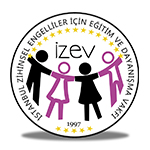 İZEV Foundation (İstanbul Education & Solidarity Foundation for Mentally Handicapped) has been operating since 1989 and continues its activities in the fields of education of children and adults with mental disabilities, as well as their socializing, gaining independent life skills, acquiring a profession and gaining the equal right to life.It offers multi-faceted support programs for adults with mentally handicapped individuals in its center located in Sarıyer, Istanbul, conducts employment studies with its shop located at Sabiha Gökçen Airport, and conducts information activities for individuals with mental disabilities through awareness-oriented field activities. Since 2018, the Foundation has been implementing research and reporting activities as well.It aims to carry out international studies by opening representative offices in the USA and England in 2020.
İZEV Foundation (İstanbul Education & Solidarity Foundation for Mentally Handicapped) has been operating since 1989 and continues its activities in the fields of education of children and adults with mental disabilities, as well as their socializing, gaining independent life skills, acquiring a profession and gaining the equal right to life.It offers multi-faceted support programs for adults with mentally handicapped individuals in its center located in Sarıyer, Istanbul, conducts employment studies with its shop located at Sabiha Gökçen Airport, and conducts information activities for individuals with mental disabilities through awareness-oriented field activities. Since 2018, the Foundation has been implementing research and reporting activities as well.It aims to carry out international studies by opening representative offices in the USA and England in 2020.
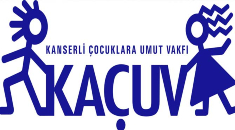 KACUV enables the continuous treatment for children whose treatment could not be afforded due to financial difficulties and ensures psychological support, which is a vital requirement in the battle against cancer, and a treatment environment suitable for child psychology. The foundation was established in 2000, in Istanbul. KACUV supports childhood cancers in different ways:
KACUV enables the continuous treatment for children whose treatment could not be afforded due to financial difficulties and ensures psychological support, which is a vital requirement in the battle against cancer, and a treatment environment suitable for child psychology. The foundation was established in 2000, in Istanbul. KACUV supports childhood cancers in different ways:
- Children and their families are supported physcologically, socially and financially during the hospitilazation period. KACUV also renovates hospital rooms, makes play rooms and education classes.
- KACUV Family Homes provide accommodation for children and their families coming outside of Istanbul during the treatment period after hospitilazation. KACUV operates two family home with 14 rooms in European side of Istanbul and the second one in Anatolian side of Istanbul with 22 rooms. Families benefit from services completely free of charge like food, house cleaning, psycho-social support and educational services.
- The foundation works on educating the public and creating awareness for childhood cancer.
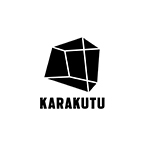 Karakutu Association is officially established in 2014 to raise awareness on the past injustices and human rights violations in the belief that learning from the past is crucial for the search of justice, peace, and dialogue in society. Our primary area of work is collective memory and coming to terms with the past. Our mission as Karakutu is to share different points of view about past injustices and human rights violations with the society especially with young people to reveal the narratives of ignored, suppressed and marginalized parties by the official history.
Karakutu Association is officially established in 2014 to raise awareness on the past injustices and human rights violations in the belief that learning from the past is crucial for the search of justice, peace, and dialogue in society. Our primary area of work is collective memory and coming to terms with the past. Our mission as Karakutu is to share different points of view about past injustices and human rights violations with the society especially with young people to reveal the narratives of ignored, suppressed and marginalized parties by the official history.
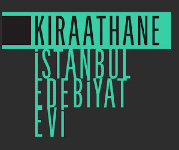 KIRAATHANE takes inspiration from the European literature house movement, was the first such venture in Turkey but has already encouraged like-minded centres elsewhere. It was founded in October 2018, at a time when the public discourse was increasingly constricted by political pressures and polarisation. Since then, it has developed a recognisable style of informal but informed debate.KIRAATHANE translates as “House of Recitation,” which in the nineteenth century referred to a well-appointed coffee house, a place to read or be read to. Like the old London coffee houses, a KIRAATHANE served as a kind of sanctuary for free discussion among equals. Today, independent publishers organise book fairs at KIRAATHANE, trans-feminists dance the tango here, readers attend lectures on neglected post-War Armenian novels. There are writers in residence schemes that bring Hisham Matar to talk about Conrad but also popular workshops on writing a family history or for learning Greek. There are lectures, exhibitions, book launches- a new event pretty much every day.KIRAATHANE inhabits a turn of the century building situated emblematically at the heart of multi-cultural Istanbul. It allows its meeting rooms to be used by other civil society organisations, has a book store and a well-frequented coffee shop.Admission to virtually all activities at KIRAATHANE is free upon pre-registration in order to attract the widest possible audience. It has organic links to K24, Turkey’s most popular online literary review, and like that publication provides a practical demonstration that individuals have a stake in freedom of expression and its defence.
KIRAATHANE takes inspiration from the European literature house movement, was the first such venture in Turkey but has already encouraged like-minded centres elsewhere. It was founded in October 2018, at a time when the public discourse was increasingly constricted by political pressures and polarisation. Since then, it has developed a recognisable style of informal but informed debate.KIRAATHANE translates as “House of Recitation,” which in the nineteenth century referred to a well-appointed coffee house, a place to read or be read to. Like the old London coffee houses, a KIRAATHANE served as a kind of sanctuary for free discussion among equals. Today, independent publishers organise book fairs at KIRAATHANE, trans-feminists dance the tango here, readers attend lectures on neglected post-War Armenian novels. There are writers in residence schemes that bring Hisham Matar to talk about Conrad but also popular workshops on writing a family history or for learning Greek. There are lectures, exhibitions, book launches- a new event pretty much every day.KIRAATHANE inhabits a turn of the century building situated emblematically at the heart of multi-cultural Istanbul. It allows its meeting rooms to be used by other civil society organisations, has a book store and a well-frequented coffee shop.Admission to virtually all activities at KIRAATHANE is free upon pre-registration in order to attract the widest possible audience. It has organic links to K24, Turkey’s most popular online literary review, and like that publication provides a practical demonstration that individuals have a stake in freedom of expression and its defence.
 KONDA, as a research and consultancy company, is fundamentally engaged with knowledge production with a specific purpose of providing insight for the specific needs of policy-makers, business leaders and academics. As the company collects data, it also processes it to suggest novel ways of challenging established orthodoxies and existing prejudices in the analyses of politics, society and the individuals in contemporary Turkey.KONDA observes the changing dynamics of society and provides analysis on social transformation. Beyond exploring the current social, economic and political situation in the country, the company makes forecasts on social waves and their future impact. Analyses by KONDA contributes to the shaping of the strategies of both private and public institutions of every scale.KONDA reports that are based on surveys and other methods of field organization aim at societal representation and offer guidance in deciphering often unforeseen social movements and momentum.KONDA’s perspective on society is not limited to the confines of politics. The company has sought and established significant collaborations with various national and international institutions operating in the fields of sociology and psychology. KONDA has conducted face-to-face surveys of more than 1 million people in the last 30 years.
KONDA, as a research and consultancy company, is fundamentally engaged with knowledge production with a specific purpose of providing insight for the specific needs of policy-makers, business leaders and academics. As the company collects data, it also processes it to suggest novel ways of challenging established orthodoxies and existing prejudices in the analyses of politics, society and the individuals in contemporary Turkey.KONDA observes the changing dynamics of society and provides analysis on social transformation. Beyond exploring the current social, economic and political situation in the country, the company makes forecasts on social waves and their future impact. Analyses by KONDA contributes to the shaping of the strategies of both private and public institutions of every scale.KONDA reports that are based on surveys and other methods of field organization aim at societal representation and offer guidance in deciphering often unforeseen social movements and momentum.KONDA’s perspective on society is not limited to the confines of politics. The company has sought and established significant collaborations with various national and international institutions operating in the fields of sociology and psychology. KONDA has conducted face-to-face surveys of more than 1 million people in the last 30 years.
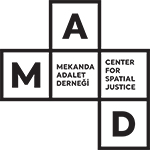 Center for Spatial Justice (Mekanda Adalet Derneg i, MAD) is a registered civil society organization working with the intention of living in fairer, more democratic, and ecological urban and rural spaces; to produce cross-disciplinary work; to gather, accumulate and share the knowledge that is innovative, qualified and public. Our Center whose team consists of architects, urban planners, legal experts, artists, videographers, designers, documentarists, and social scientists, brings together transnational knowledge and cross-disciplinary expertise with local communities, to help to (re-)produce spaces and practices of hope.Against the expansion of top-down spatial interventions, aggressive mega projects, urban gentrification processes, and extraction and energy infrastructures in urban and rural spaces, we work with civil society organizations, grassroots communities, activists, students, academics and journalists. We push for an agenda to recognize the right to space and offer a common platform that would empower disenfranchised segments and agents of the civil society by adopting a wide range of methodologies including but not limited to guided walks, data visualization, action-research, video-documentaries, educational activities, and participatory design workshops.
Center for Spatial Justice (Mekanda Adalet Derneg i, MAD) is a registered civil society organization working with the intention of living in fairer, more democratic, and ecological urban and rural spaces; to produce cross-disciplinary work; to gather, accumulate and share the knowledge that is innovative, qualified and public. Our Center whose team consists of architects, urban planners, legal experts, artists, videographers, designers, documentarists, and social scientists, brings together transnational knowledge and cross-disciplinary expertise with local communities, to help to (re-)produce spaces and practices of hope.Against the expansion of top-down spatial interventions, aggressive mega projects, urban gentrification processes, and extraction and energy infrastructures in urban and rural spaces, we work with civil society organizations, grassroots communities, activists, students, academics and journalists. We push for an agenda to recognize the right to space and offer a common platform that would empower disenfranchised segments and agents of the civil society by adopting a wide range of methodologies including but not limited to guided walks, data visualization, action-research, video-documentaries, educational activities, and participatory design workshops.
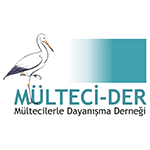 Mültecilerle Dayanışma Derneği (Mülteci-Der) is a non-profit, non-governmental civil society organisation established in Izmir/Turkey in 2008. Mülteci-Der is a human-rights based organisation; works to protect and promote human-rights of refugees, migrants. The organisation provides its services regardles of legal status, language, religion, sex, sexual orientation, gender identity, age, disability, political view, socio-economic status of the persons. The main target population of Mülteci-Der is refugees (regardless of their statuses in Turkey and country of origin), asylum seekers and migrants in Turkey. The main objective of Mülteci-Der is to protect and promote refugee/migrants rights and improve the national legal framework and its implementation to be competable with human dignity and international human rights standards.
Mültecilerle Dayanışma Derneği (Mülteci-Der) is a non-profit, non-governmental civil society organisation established in Izmir/Turkey in 2008. Mülteci-Der is a human-rights based organisation; works to protect and promote human-rights of refugees, migrants. The organisation provides its services regardles of legal status, language, religion, sex, sexual orientation, gender identity, age, disability, political view, socio-economic status of the persons. The main target population of Mülteci-Der is refugees (regardless of their statuses in Turkey and country of origin), asylum seekers and migrants in Turkey. The main objective of Mülteci-Der is to protect and promote refugee/migrants rights and improve the national legal framework and its implementation to be competable with human dignity and international human rights standards.
The main pillar of Mülteci-Der activities is the provision of individual legal/protection counseling for effective and easy access to rights and services of the target population. Legal/protection activities focus not only on those refugees/migrants in rural settings but also those in immigration detention. It is one of the rare CSOs in Turkey that works on access to justice and the rights of immigration detainees.
Mülteci-Der organises informative sessions for refugees on their rights & obligations in different cities and focus group meetings with woman refugees in Izmir with the aim of enhancing their resilience through the provision of right and up-dated information and to analyse and monitor the needs and challenges, living conditions and access to rights & services of the target population.
Mülteci-Der conducts capacity building trainings to professional groups who are in close and constant contact with the target population. Lawyers, bar associations, social workers are the main target group of capacity building activities. Through various activities, it tries to combat prejudices and discrimination targetting refugees. Mülteci-Der conducts advocacy activities at local, national and European levels to advance the policies and practices in the asylum and migration field.
Association for Supporting Tarlabasi Community (known as Tarlabasi Community Center/TTM) is an NGO active in the Tarlabasi area of Beyoglu, Istanbul. TTM serves to reduce the prejudices against Tarlabasi and to empower the inhabitants of the region via psychosocial activities and advocacy with professionals and volunteers with a perspective on universal human rights, gender equality, social inclusion, and child well-being.
Since its establishment in 2007, the Association for Supporting Tarlabasi Community has always been a safe space especially for children and provided social, psychological and educational support for vulnerable children, youth and women living in Tarlabasi.
For further information about Tarlabaşı: Most of the population who came from the Southeast in 80’s and 90’s has settled at Tarlabaşı. In recent years, Tarlabaşı has taken its current form with the settlement of new, mostly unregistered immigrants from Iran, Iraq, Africa and recently Syria. 20% of this population consists of Romanis, and they often reside around the lower region places close to Dolapdere. Kurds. About 3000-3500 Iranian, Iraqi and African refugees live in Tarlabaşı. The number of Syrian registered refugees who settled in the neighborhood is around 9000. Nevertheless, the actual number is much higher when the unregistered refugees are considered.TTM aims to create a safe space for all who mentioned above where children in Tarlabasi can learn about their rights, fulfill their potential, and become socially and psychologically empowered.
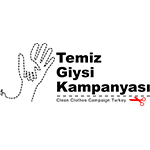
CCC Turkey works together with trade unions and workers in the textile sector to ensure that the fundamental rights of workers are respected. We educate and mobilise consumers, lobby companies and governments, and offer direct solidarity support to workers and labour unions. CCC Turkey brings together stakeholders such as trade unions and NGOs covering a broad spectrum of perspectives and interests, such as workplace health and safety, women’s rights, consumer advocacy and poverty reduction. CCC Turkey is a member of the international Clean Clothes Campaign alliance, with national campaigns in 15 European countries and a network of 250 organisations worldwide.
Foundation for Society and Legal Studies (TOHAV) was founded by 46 lawyers registered in Istanbul, Ankara and Izmir Bar Associations in October 1994 in Istanbul.
TOHAV is a non-governmental, independent, impartial, non-political and civil-society organization established under the Turkish Civil Code.Members of TOHAV consist of lawyers registered in Istanbul, Ankara, Izmir,Diyarbakır, Batman, Van and Malatya Bar Associations. TOHAV carries out its activities through member and volunteer lawyers and physicians working in the field of torture and rehabilitation.
TOHAV's Headquarter is located in Istanbul. It has a Board of Directors consisting of 7 principal and 7 substitute member lawyers and a Supervisory Board consisting of 3 principal and 3 substitute member lawyers. Members of the board of directors and Supervisory Board are elected by members of TOHAV for a period of two years.
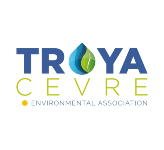 Troya Environmental Association works in the field of preventing climate change and focuses on energy production, one of the major reasons for the climate crisis, by promoting the use of renewable energy. The association aims to spread the use of renewable energy in houses/workplaces of the people in rural areas. That means an energy transition with the hand of the community. Troya works for lobbying to developing and strengthening renewable energy cooperatives all around in Turkey and in east Europe (including Georgia, Armenia, and Ukraine). The association has its own energy cooperative which is the only member in east Europe, within the European umbrella organization of energy cooperatives, REScoop.eu. For this reason, every year an international conference is organised by Troya Association. In the third year of the conference, for the first time, speakers from Armenia took stage at the conference and shared their experience. Troya also publishes some publications about renewable energy communities for cooperatives.
Troya Environmental Association works in the field of preventing climate change and focuses on energy production, one of the major reasons for the climate crisis, by promoting the use of renewable energy. The association aims to spread the use of renewable energy in houses/workplaces of the people in rural areas. That means an energy transition with the hand of the community. Troya works for lobbying to developing and strengthening renewable energy cooperatives all around in Turkey and in east Europe (including Georgia, Armenia, and Ukraine). The association has its own energy cooperative which is the only member in east Europe, within the European umbrella organization of energy cooperatives, REScoop.eu. For this reason, every year an international conference is organised by Troya Association. In the third year of the conference, for the first time, speakers from Armenia took stage at the conference and shared their experience. Troya also publishes some publications about renewable energy communities for cooperatives.
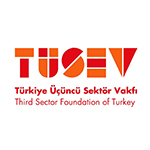 TUSEV was established in 1993 by Turkey's leading civil society organizations and has grown to support network of 80 associations and foundations that share a vision of strengthening the legal, fiscal and operations infrastructure of the third sector in Turkey. Among TUSEV's main objectives are non-profit law reform, research on civil society and philanthropy, promoting social investment and social justice philanthropy, and facilitating partnerships across sectors, as well as across borders.
TUSEV was established in 1993 by Turkey's leading civil society organizations and has grown to support network of 80 associations and foundations that share a vision of strengthening the legal, fiscal and operations infrastructure of the third sector in Turkey. Among TUSEV's main objectives are non-profit law reform, research on civil society and philanthropy, promoting social investment and social justice philanthropy, and facilitating partnerships across sectors, as well as across borders.
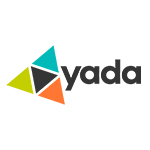 Yaşama Dair Vakıf (YADA Foundation) was established by a group of social scientists and project management and implementation specialists in 2005 with the mission of designing and implementing projects in order to minimize the gap between “theory” and “actual life”. It aims to produce knowledge regarding the different aspects of social life and convert this knowledge into sustainable and applicable projects.Throughout the research and implementation projects, YADA has developed cooperations and partnerships with international organizations (the European Union, UNDP, UNICEF, UN Women, etc.) scientific institutions (The Scientific and Technological Research Council of Turkey, METU, Ankara U., Şehir U., Akdeniz U., etc.), prominent NGOs of Turkey (STGM, TÜSEV, TEMA, WWF, Greenpeace, etc.) and private companies (Unilever, Coca-Cola, Danone, Pirelli, Koç Holding, etc.), as well as by prestigious academic organizations such as TÜBİTAK, Ankara University, Middle East Technical University, etc.Most current works of YADA focus on increasing dialogue between CSOs and increasing the impact capacity of CSOs and different decision-makers and stakeholders. Through this approach, a series of events under the name “Meydan” (Square)[1] is being conducted.Another important platform for civil society dialogue in Turkey established by YADA Foundation is Sivil Sayfalar (Civil Pages[2]). Civil Pages has been put into practice with the aim of bringing the disconnected civil society world together in an online course, making the produced knowledge and experience visible and traceable, creating opportunities for collaborations, and popularizing the notion of “civil society journalism”.
Yaşama Dair Vakıf (YADA Foundation) was established by a group of social scientists and project management and implementation specialists in 2005 with the mission of designing and implementing projects in order to minimize the gap between “theory” and “actual life”. It aims to produce knowledge regarding the different aspects of social life and convert this knowledge into sustainable and applicable projects.Throughout the research and implementation projects, YADA has developed cooperations and partnerships with international organizations (the European Union, UNDP, UNICEF, UN Women, etc.) scientific institutions (The Scientific and Technological Research Council of Turkey, METU, Ankara U., Şehir U., Akdeniz U., etc.), prominent NGOs of Turkey (STGM, TÜSEV, TEMA, WWF, Greenpeace, etc.) and private companies (Unilever, Coca-Cola, Danone, Pirelli, Koç Holding, etc.), as well as by prestigious academic organizations such as TÜBİTAK, Ankara University, Middle East Technical University, etc.Most current works of YADA focus on increasing dialogue between CSOs and increasing the impact capacity of CSOs and different decision-makers and stakeholders. Through this approach, a series of events under the name “Meydan” (Square)[1] is being conducted.Another important platform for civil society dialogue in Turkey established by YADA Foundation is Sivil Sayfalar (Civil Pages[2]). Civil Pages has been put into practice with the aim of bringing the disconnected civil society world together in an online course, making the produced knowledge and experience visible and traceable, creating opportunities for collaborations, and popularizing the notion of “civil society journalism”.
| HOST ORGANISATIONS (ARMENIA) |
| Universities and University-related Research Institutions |
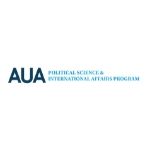 The American University of Armenia (AUA) is a private, independent university located in Yerevan, Armenia. Founded in 1991, AUA is affiliated with the University of California. Through teaching, research, and public service, AUA serves Armenia and the region by supplying high-quality, graduate and undergraduate education, encouraging civic engagement, and promoting democratic values.
The American University of Armenia (AUA) is a private, independent university located in Yerevan, Armenia. Founded in 1991, AUA is affiliated with the University of California. Through teaching, research, and public service, AUA serves Armenia and the region by supplying high-quality, graduate and undergraduate education, encouraging civic engagement, and promoting democratic values.
The PSIA program equips students with advanced analytical reasoning, critical thinking, and communication skills through the study of political science and international affairs, emphasizing local and global perspectives and practical applications of theory. The program aims to produce world-class research and teaching, and through these, to contribute to the development of the nation.
The two-year Master’s degree in PSIA offers a curriculum that includes political theory, methodology, international relations, comparative politics, public administration, public policy, development policy, and political economy. Throughout the program, students are encouraged to think critically about issues from both local and global perspectives as they engage in analysis, research, writing, and leadership training. Courses place a strong emphasis on research and comparative methodology and analysis, and on bringing practical applications of theory into the classroom.
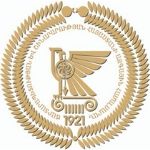 The National University of Architecture and Construction of Armenia (NUACA) dates back to 1921. More than 95 years of history resulted in formulating traditions that contribute to the preparation of professionals in architecture, construction, urban services and ecology, design, management and technologies, by meeting international standards and requirements of labor markets.
The National University of Architecture and Construction of Armenia (NUACA) dates back to 1921. More than 95 years of history resulted in formulating traditions that contribute to the preparation of professionals in architecture, construction, urban services and ecology, design, management and technologies, by meeting international standards and requirements of labor markets.
NUACA provides higher education and professional qualifications within the four-cycled levels, including doctoral studies. The university regularly organizes international conferences, seminars and workshops, and publishes scientific journals, as well as scientific and methodological literature.
NUACA is the first university in Armenia with European accreditation, conducted by the Evaluation High Council of Research and Higher Education (HCERES, France) and the Agencia Nacional de Calidad y Evaluación of Acreditación (ANECA, Spain).
Since 1994, the degree granted to the graduates of the Faculty of Architecture has been officially recognized by the government of France as equivalent to the French diploma. The last decision on the recognition of the diploma was taken in 2017 for a period of five years.
NUACA has more than 60 cooperation agreements with various educational institutions across a wide geographic range. The university is equipped with modern laboratories.
 The Institute of Archaeology and Ethnography was founded in 1959, adjacent to the Academy of Sciences of Armenia. The institute has the following sections: Archaeology, Ethnology and Folklore Studies each of which has its respective departments. The Oral History Center operates within the Department of Contemporary Anthropological Studies (Ethnology).
The Institute of Archaeology and Ethnography was founded in 1959, adjacent to the Academy of Sciences of Armenia. The institute has the following sections: Archaeology, Ethnology and Folklore Studies each of which has its respective departments. The Oral History Center operates within the Department of Contemporary Anthropological Studies (Ethnology).
The Oral History Center was established in 2017 as an educational and research center. Annually it provides both closed courses/lectures/talks for the Center researchers to develop their knowledge and skills, and public courses/lectures/talks to disseminate the methodology and approaches of Oral History among social scientists.
For the last three years the Center has delivered about 10 educational courses on oral history methodology. Within the projects of the Center, an exhibition was organized based on the photos taken by the students of the Center during their fieldwork, and a collection of essays written by them was published (“Unheard voices: Memory and Post-Memory in Oral History”, ed. by G. Shagoyan, Yerevan: IAE Publishing House, 2018).
Now the Center collaborates with the American University of Armenia and American University of Paris to develop social tours on Genocide memory policy in Armenia, by mapping the memory policy from top-down to grassroots.
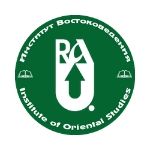 Institute of Oriental Studies at the Russian-Armenian (Slavonic) University provides education at three levels of higher education, which includes BA, MA and Ph.D. programs for four fields of Oriental studies (Turkic Studies, Arabian studies, Iranian studies and Indology).
Institute of Oriental Studies at the Russian-Armenian (Slavonic) University provides education at three levels of higher education, which includes BA, MA and Ph.D. programs for four fields of Oriental studies (Turkic Studies, Arabian studies, Iranian studies and Indology).
The courses present both the major traditions of the regions studied (Turkey and Central Asia, Iran, Afghanistan, Tajikistan, Southern Asia, Middle East and Southern Afrika) and, in most cases, their modern developments. All courses include language, literature, history and culture, and there are a wide range of options in such fields as art and archaeology, philosophy, religion, modern social studies, economy, politics. The basic course programme is also a background for the methodologies and concepts of economics, law and social sciences, with a concentration on the adaptation of Oriental languages (Persian, Turkish, Arabic, Hindi).
The requirements are designed with sufficient flexibility so that students may pursue their chosen area of concentration as an introduction to the region as a whole, or as a more narrowly-focused exploration of a particular country or theme, depending on their interests.
Turkic Studies: Turkic Studies deals with the languages, literature, and histories of Turkic-speaking peoples and communities, past and present. This includes studying their intellectual and material cultures as well as their linguistic, cultural, and other encounters with neighboring peoples and populations.
In the degree programme, knowledge and skills are taught that relate to as many of the above-mentioned fields as possible, or at least offer opportunities for getting started in these fields. The degree programme focuses on preparing students for an academic career while placing special emphasis on imparting knowledge and skills that facilitate competent work in media as well as private and public institutions functioning as consultants in fields related to Turkic Studies.
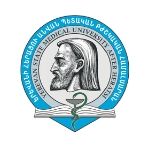 YSMU is nearly a one-hundred-year-old institution, preparing graduate students and professionals. Since 2001 the instruction languages are Armenian, Russian, and English. Roughly 800 students graduate yearly as diploma specialists from faculties of general medicine, stomatology, pharmacy, military medicine and public health. Currently, the university has 6000 students, about 1800 of which are international students. They come from more than 30 countries. YSMU has three clinical complexes: №1 University Hospital Complex, "Muratsan" Children's Hospital, and Mikayelyan Institute of Surgery.
YSMU is nearly a one-hundred-year-old institution, preparing graduate students and professionals. Since 2001 the instruction languages are Armenian, Russian, and English. Roughly 800 students graduate yearly as diploma specialists from faculties of general medicine, stomatology, pharmacy, military medicine and public health. Currently, the university has 6000 students, about 1800 of which are international students. They come from more than 30 countries. YSMU has three clinical complexes: №1 University Hospital Complex, "Muratsan" Children's Hospital, and Mikayelyan Institute of Surgery.
YSMU library has more than 250000 books in different languages. YSMU has established 2 simulation centers: one for future medical doctors and one for future dentists. The centers enable the students to approach the “patient” a dozen or even a hundred times with the aim to undergo training and be skilled specialists. The future doctors can conduct endoscopic, neurosurgical, cardiac surgical operations, injections, surgical suture, childbirth process, first aid service, etc. In the dental simulation center the special simulators completely repeat the outline of the human anatomy. Due to the advanced technical equipment, the students can see the instructor’s work on the special screens and repeat it on a moulage.
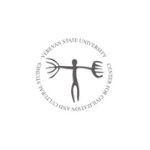 The Center for Civilization and Cultural Studies (CCCS) was founded in April 2007. The research activities of the Center focus on a wide range of issues including value systems, civilizational streams, mechanisms of intercultural cooperation, regional socio-political processes, as well as public policymaking. The Center periodically publishes the results of its work in the issues of The Analytical Bulletin and The Counselor of Public Policy.
The Center for Civilization and Cultural Studies (CCCS) was founded in April 2007. The research activities of the Center focus on a wide range of issues including value systems, civilizational streams, mechanisms of intercultural cooperation, regional socio-political processes, as well as public policymaking. The Center periodically publishes the results of its work in the issues of The Analytical Bulletin and The Counselor of Public Policy.
| Media |
| Information and Communication Technologies |
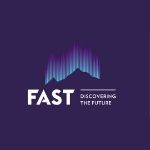 Foundation for Armenian Science and Technology (FAST) is a non-profit organization established in 2017 with the mission to build an ecosystem that drives technological innovation and scientific advancement in Armenia and beyond. FAST envisaged a holistic model of Science, with Education-Research-Commercialization being the pillars working synergistically, and driving infinite development of the ecosystem. In this holistic model Science, as a body of knowledge, is preserved by Education, extended by Research, and exerted by Commercialization. This model is used for the strategic development of programs and projects at FAST. Each project is aimed at strengthening a specific component and assure smooth process dynamics within each pillar.
Foundation for Armenian Science and Technology (FAST) is a non-profit organization established in 2017 with the mission to build an ecosystem that drives technological innovation and scientific advancement in Armenia and beyond. FAST envisaged a holistic model of Science, with Education-Research-Commercialization being the pillars working synergistically, and driving infinite development of the ecosystem. In this holistic model Science, as a body of knowledge, is preserved by Education, extended by Research, and exerted by Commercialization. This model is used for the strategic development of programs and projects at FAST. Each project is aimed at strengthening a specific component and assure smooth process dynamics within each pillar.
Priority fields of the organization are AI & Data Science, Advanced Materials, Biotechnology and Robotics.
| Art and Culture |
We’re a group of experienced female photographers at 4plus Documentary Photography Center. Photography is our way to examine, document and think as witnesses of our time, and it is our aim to raise and represent Armenia’s time.
For us, photography is a vision transformed into a language and a form of thinking. However, every day we are faced with the sensitivity of photography, the complexity of its application and differences in its contexts. We’re committed to producing high-quality multimedia stories, and we treat our photographic content and characters with the greatest respect and devotion. We believe that images are endowed with power, and the stories that we create can be influential by enhancing dialogue and sowing seeds for change.
4plus.org is a growing platform for visual storytelling. We support the unity of the industry and invite specialists and young photographers to take part in our activities. We also want to contribute to the formation of the local market of photography and to the formation of the school of documentary photography.
We also teach, conduct master classes both in Yerevan and in the regions. We organize individual and group exhibitions, lectures, discussions, we publish catalogs and photo books.
4 Plus Documentary Photography Center was founded in 2012. Current members include Anahit Hayrapetyan, Nazik Armenakyan, Nelly Shishmanyan and Piruza Khalapyan.
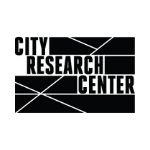
CRC's mission is to:
- Create a trans-national network of culture and youth organizations and institutions in the South Caucasus and Europe that promote intercultural dialogue among art and culture between people, youth and the general public.
- Identify and preserve unique aspects of Caucasian cultures across the region supporting the under-represented cultural and youth groups to reveal their culture and art, make it known about the larger societies.
- Reveal the social and especially educational problems among the youth population in Gyumri community, capacity building for the socially inactive and excluded youth groups through their education and artistic creativity.
| International Organisations, Research Institutions, Think-tanks |
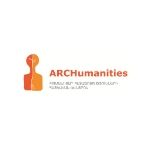 With a larger vision of modernizing the Armenian society, the Armenian Research Center in Humanities (ARCH) conducts disciplinary and interdisciplinary research in various fields of humanities (political science, sociology, cultural studies, literary criticism, philosophy and others), as well as organises scientific and educational activities, publishing and outreach. In a globalizing world, the study of the possibilities, directions, and perspectives of national self-organization of the Armenian society is of major importance for the ARCH.
With a larger vision of modernizing the Armenian society, the Armenian Research Center in Humanities (ARCH) conducts disciplinary and interdisciplinary research in various fields of humanities (political science, sociology, cultural studies, literary criticism, philosophy and others), as well as organises scientific and educational activities, publishing and outreach. In a globalizing world, the study of the possibilities, directions, and perspectives of national self-organization of the Armenian society is of major importance for the ARCH.
To this end, ARCH is engaged in ongoing intellectual dialogue with the international scientific communities. This contributes to the exchange of experiences in the study of contemporary social structures in different countries around the world and the development of relevant discourses descriptive of modern Armenian realities. This exchange implies not only borrowing and creatively adapting existing theoretical models and social practices to the local situation, but also generalizing the results of the Armenian experience of social transformation and bringing them to the international community.
One of the primary tasks of the ARCH is the formation of a communication platform for scholars of Armenian Studies in Armenia, abroad, and in the Diaspora, for the purpose of effective dialogue, mutual understanding, and cooperation between them.
The ARCH aims at building a critical scientific environment and high professionalism in the field of humanities in Armenia, through conferences and seminars, the publication of own and translated works, as well as other tools common in the civil society. Open dialogue is the ARCH’s main leverage of influence both on state institutions and on public opinion.
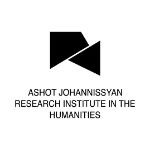 The Ashot Johannissyan Research Institute in the Humanities was founded in 2014 in Yerevan. The Institute aims to develop a theoretically and methodologically informed research sensitive to the possibilities of study offered by the object itself. The Institute encourages theoretical and philosophical research, development of new methodologies, as well as studies not confined to the framework of Armenian Studies. Yet the Institute formulates its objectives taking both the Armenian historical experience and Armenia as a position that provides a particular perspective onto the world, a perspective where various conflicting trends and legacies intersect. The historical scope of research is not limited to a particular period, though a priority is given to the studies of Modernity and the Modern period. The Institute is named after intellectual historian Ashot Johannissyan (1887-1972).
The Ashot Johannissyan Research Institute in the Humanities was founded in 2014 in Yerevan. The Institute aims to develop a theoretically and methodologically informed research sensitive to the possibilities of study offered by the object itself. The Institute encourages theoretical and philosophical research, development of new methodologies, as well as studies not confined to the framework of Armenian Studies. Yet the Institute formulates its objectives taking both the Armenian historical experience and Armenia as a position that provides a particular perspective onto the world, a perspective where various conflicting trends and legacies intersect. The historical scope of research is not limited to a particular period, though a priority is given to the studies of Modernity and the Modern period. The Institute is named after intellectual historian Ashot Johannissyan (1887-1972).
The goal of the Institute is to foster the humanities scholarship in Armenia and contribute critically to the ongoing international discussions in the field. The Institute aims to foster scholarly collaboration between Armenia and the Diaspora via research projects, publishing initiatives and translations. It aims to encourage historically conscious and theoretically engaged scholarship that would contribute critically and productively to the development of new approaches in the humanities through publishing, translation, public initiatives, library and archive. The Institute offers local scholars academic resources for their research and provides them with opportunities for sharing their research through publications, conferences, symposia and other forms of engagement with the public.
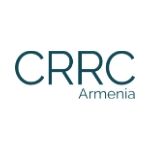 CRRC-Armenia is a regionally focused and nationally based independent, non-partisan research center. Our core mandate is to address national and regional socio-economic and political challenges via high-quality data collection, analysis, and enhancement of the scientific capacity.
CRRC-Armenia is a regionally focused and nationally based independent, non-partisan research center. Our core mandate is to address national and regional socio-economic and political challenges via high-quality data collection, analysis, and enhancement of the scientific capacity.
Established in 2003, as part of CRRC network operating in Armenia, Azerbaijan, and Georgia, CRRC-Armenia was registered as a local Foundation in 2013. CRRC-Armenia has extensive experience in designing and conducting both qualitative and quantitative research using advanced methodologies. Over the decade of its existence, CRRC-Armenia has designed and conducted over 60 nationwide surveys.
CRRC is undertaking large research projects with major international organizations in Armenia and the South Caucasus, including United Nations agencies, the World Bank Group, USAID, Delloite, OECD, the European Training Foundation, ADC, the Deutsche Gesellschaft für Internationale Zusammenarbeit, Asian Development Bank, various embassies, and donor organizations.
Caucasus Barometer
The CRRC Caucasus Barometer is the single largest coordinated longitudinal data-gathering effort in the South Caucasus, and runs simultaneously in Armenia, Azerbaijan, and Georgia every two years.
Conducted in four languages (with an English-language source questionnaire), and now in its 12th year, with about 2,000 respondents per country, the Caucasus Barometer seeks to establish the highest standards of survey work in the region. To run our surveys successfully, we combine international expertise with highly committed local professionals, who ensure that the nuances of the Armenian context are captured, while foreign experts bring international experience to resolve recurring challenges.
Research towards Armenia-Turkey normalization is being conducted, too.
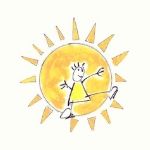 Direct Aid Association (DAA) implements educational and psychosocial programs at Arabkir MC&ICAH and pediatric department of Haematology hospital. In DAA hospital school the children on inpatient treatment at the hospital are provided with the continuity of education which is organized according to the state curriculum. However, alongside the schoolbooks educational-developmental games and other interactive methods are used. The sessions are organized in groups and individually. DAA also implements a number of social programs for children on treatment and their families. DAA staff closely cooperates with the hospital psychosocial team and medical personnel. DAA also runs Patients’ Family House (PFH) providing accommodation and related services to the patients on treatment in DAA action hospitals from the regions of Armenia.
Direct Aid Association (DAA) implements educational and psychosocial programs at Arabkir MC&ICAH and pediatric department of Haematology hospital. In DAA hospital school the children on inpatient treatment at the hospital are provided with the continuity of education which is organized according to the state curriculum. However, alongside the schoolbooks educational-developmental games and other interactive methods are used. The sessions are organized in groups and individually. DAA also implements a number of social programs for children on treatment and their families. DAA staff closely cooperates with the hospital psychosocial team and medical personnel. DAA also runs Patients’ Family House (PFH) providing accommodation and related services to the patients on treatment in DAA action hospitals from the regions of Armenia.
 The Food and Agriculture Organization (FAO) is a specialized agency of the United Nations that leads international efforts to defeat hunger. Our goal is to achieve food security for all and make sure that people have regular access to enough high-quality food to lead active, healthy lives. With over 194 member states, FAO works in over 130 countries worldwide. We believe that everyone can play a part in ending hunger.
The Food and Agriculture Organization (FAO) is a specialized agency of the United Nations that leads international efforts to defeat hunger. Our goal is to achieve food security for all and make sure that people have regular access to enough high-quality food to lead active, healthy lives. With over 194 member states, FAO works in over 130 countries worldwide. We believe that everyone can play a part in ending hunger.
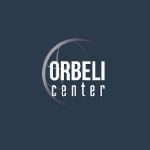 Orbeli Center was founded in March 2018. It is a project developed by Public Relations and Information Center SNCO under the Prime Minister’s Office, which conducts research and analysis in the field of economics, regional, domestic and foreign policy developments, security, infrastructure, media, etc.
Orbeli Center was founded in March 2018. It is a project developed by Public Relations and Information Center SNCO under the Prime Minister’s Office, which conducts research and analysis in the field of economics, regional, domestic and foreign policy developments, security, infrastructure, media, etc.
Orbeli Center organizes conferences, lectures, and make media appearances that aim to increase the knowledge, awareness, and salience of various domestic and international developments.
The academic research articles and expert opinions published on the Center’s website are particularly useful for officials, senior executives, political scientists, analysts, experts of corresponding spheres and others.
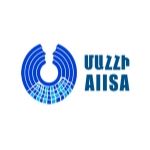 The Armenian Institute of International and Security Affairs—AIISA—is an independent research institute based in Yerevan, pursuing the goal of promoting independent foreign and domestic policy analysis for Armenia anchored in the shared values of human rights, political freedom, and free market. AIISA aims at shaping the peace and security nationally and internationally through:
The Armenian Institute of International and Security Affairs—AIISA—is an independent research institute based in Yerevan, pursuing the goal of promoting independent foreign and domestic policy analysis for Armenia anchored in the shared values of human rights, political freedom, and free market. AIISA aims at shaping the peace and security nationally and internationally through:
- Comprehensive Monitoring & In-Depth Analysi
- Risk Assessment & Strategic Forecast
- Policy Implication & Intellectual Impact
- Crisis Management, Conflict Prevention & Resolution
AIISA hosts expert roundtables, policy seminars on the latest developments in the country. It also has 10-day evening Democracy Schools after A. Bayandur, which networks students, young researchers from Armenia’s all educational institutions, and the fora launched by AIISA create opportunities for their networking and further close cooperation. AIISA publishes several hundreds of analytical articles and researches annually on pressing issues and developments of international and regional, foreign and domestic policies, as well as commenting and giving interviews to local and international printed media and TV news.
| Civil Society Organisations |
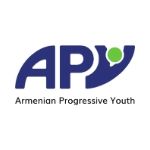 Armenian Progressive Youth (APY) was founded in Yerevan, Armenia in 2009 and is one of the largest youth-driven organizations in Armenia. APY aims to support, inspire and engage young people from Armenia and all over the world to develop their social leadership skills, to take their civic responsibility and to act as change-makers. At the heart of our efforts is boosting the potential of young people, empowering, engaging and inspiring them to succeed as citizens, entrepreneurs and change-makers. We do it by building capacities, helping youth to acquire new knowledge and skills, providing mobility opportunities and engaging youth in volunteering programs.
Armenian Progressive Youth (APY) was founded in Yerevan, Armenia in 2009 and is one of the largest youth-driven organizations in Armenia. APY aims to support, inspire and engage young people from Armenia and all over the world to develop their social leadership skills, to take their civic responsibility and to act as change-makers. At the heart of our efforts is boosting the potential of young people, empowering, engaging and inspiring them to succeed as citizens, entrepreneurs and change-makers. We do it by building capacities, helping youth to acquire new knowledge and skills, providing mobility opportunities and engaging youth in volunteering programs.
Armenian Progressive Youth NGO (APY) has been working with young people for 10 years. Our mission is to promote active citizenship and active political and economic participation of young people in civic life, to economically empower marginalized youth and promote youth entrepreneurship, to increase the activism of young people and contribute to the development of civil society in Armenia. APY tries to bring positive changes to Armenia through the active engagement of young people in the society. APY has implemented around 300 local, national and transnational projects involving 25000 young people from Armenia.
The main experience of the organization lies within the areas of education for active citizenship, youth economic empowerment, active participation and civic education. The organization pursues several goals which are also strongly connected to the areas covered by the project.
The organisation aims at:
- fostering active citizenship and youth participation by improving understanding of democratic values and principles among young people;
- building capacities of youth and providing personal and professional growth through non-formal education and volunteering programs;
- stimulating accessibility of young people to non-formal education opportunities and enhancing transparency in youth work;
- strengthening educational and intercultural exchange between the youth of Armenia and Turkey.
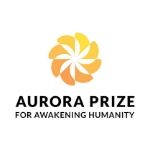 Founded on behalf of the survivors of the Armenian Genocide and in gratitude to their saviors, the Aurora Humanitarian Initiative seeks to empower modern-day saviors to offer life and hope to those in urgent need of basic humanitarian aid and thus continue the cycle of giving internationally. The Aurora Humanitarian Initiative is Gratitude in Action. The Initiative is aimed to support people and promote projects that tackle the needs of the most helpless and destitute and do so at great risk. This is achieved through the Initiative’s various programs: The Aurora Prize for Awakening Humanity, the Aurora Dialogues, the Aurora Humanitarian Index, the Gratitude Projects, the Aurora Movement and the 100 LIVES Initiative.
Founded on behalf of the survivors of the Armenian Genocide and in gratitude to their saviors, the Aurora Humanitarian Initiative seeks to empower modern-day saviors to offer life and hope to those in urgent need of basic humanitarian aid and thus continue the cycle of giving internationally. The Aurora Humanitarian Initiative is Gratitude in Action. The Initiative is aimed to support people and promote projects that tackle the needs of the most helpless and destitute and do so at great risk. This is achieved through the Initiative’s various programs: The Aurora Prize for Awakening Humanity, the Aurora Dialogues, the Aurora Humanitarian Index, the Gratitude Projects, the Aurora Movement and the 100 LIVES Initiative.
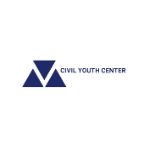 Civil Youth Center was created in 2015 in the scope of “Demanding Citizenry for Responsible Governance” project run by Journalists’ “Asparez” Club in partnership with Open Society Foundation and Transparency International-Armenia. In 2018 the Center transformed into an independent non-governmental organization with a mission to promote human rights and contribute democratic developments. The organization was largely involved in civic processes to shape demanding behavior among youth and strengthen their leadership capacity to voice about community problems and needs. Currently the organization is cooperating with U.S Embassy, Yerevan and Prague Civil Society Center and looking for new partners to extend its professional network and ability to lead large-scale projects.
Civil Youth Center was created in 2015 in the scope of “Demanding Citizenry for Responsible Governance” project run by Journalists’ “Asparez” Club in partnership with Open Society Foundation and Transparency International-Armenia. In 2018 the Center transformed into an independent non-governmental organization with a mission to promote human rights and contribute democratic developments. The organization was largely involved in civic processes to shape demanding behavior among youth and strengthen their leadership capacity to voice about community problems and needs. Currently the organization is cooperating with U.S Embassy, Yerevan and Prague Civil Society Center and looking for new partners to extend its professional network and ability to lead large-scale projects.
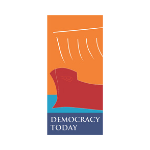 Founded as an initiative of civic activists in 1994, Democracy Today (DT) has been registered as an NGO in 2002. DT is a union of public leaders, scholars, activists, whose aim is to support and strengthen democratic achievements and human rights in Armenia.
Founded as an initiative of civic activists in 1994, Democracy Today (DT) has been registered as an NGO in 2002. DT is a union of public leaders, scholars, activists, whose aim is to support and strengthen democratic achievements and human rights in Armenia.
Democracy today’s mission is to:
- Support democratic processes in Armenia;
- Enhance women’s role and invest in building gender-sensitive and inclusive society
- Protect the rule of law and human rights.
Recent political events in Armenia have had an important impact on the nature of our work and go in line with our vision of Armenia as a democratic country governed by the rule of law and with a balanced participation of women and men in the country’s political, social, economic and cultural life on equal and non-discriminatory basis.
In 2019, DT worked in five main directions, which are as follows:
- peacebuilding and conflict transformation
- women’s rights and gender equality
- critical and creative thinking
- capacity building.
We hope that the investment of “Democracy Today” and other civil society organizations will have their contribution in helping our country to become a place where everybody’s rights and dignity are protected, and women play an important role in making the society just, secure, and prosperous - a democratic country with strong rule of law and balanced participation of women and men in society.
 “For Equal Rights” NGO has been launched as a civic initiative since 2013. Later on, in 2016 the initiative enlarged the scope of its activities and was registered as an NGO. The mission of FER is:
“For Equal Rights” NGO has been launched as a civic initiative since 2013. Later on, in 2016 the initiative enlarged the scope of its activities and was registered as an NGO. The mission of FER is:
- To promote the development of civic consciousness, enhancing values based on rule of law, creation of culture of discussions and debates by enlarging the opportunities of freedom of speech and pluralism.
- To stimulate youth and CSO participation in social and political affairs, increase their influence on decision making process and raise the accountability of the public institutions.
- To create an alternative dialogue platform for meetings, discussions and debates for representatives of civil society, youth, academia and field of culture, media, policy makers and public figures.
- To raise issues of public concern and create a new field for comprehensive discussions on these issues.
- To build the capacity of youth, civic activist groups and media representatives and promote development of legally conscious and demanding civil society.
- We believe that the dignified and legally conscious individual is the guarantee of healthy society and we are working for promoting that.
- All the people are born free and equal with their rights and dignity.
- The human being and his/her dignity are ultimate values.
- Everyone has the freedom of expressing his/her opinion, while refraining from offending someone’s dignity and reputation.
The projects we implement are diverse in formats and methods and include human rights festivals, human rights campaigns, pan-Armenian student debate club, human rights and civic activism camps, public discussions, film screenings, women’s talks, exhibitions, human rights talks with high level officials, human rights schools, media tours, training courses, etc..
See the Facebook page of “Article 3” Human Rights Club Founded by “For Equal Rights” NGO for more details.
 Helsinki Citizen's Assembly-Vanadzor office NGO (HCA Vanadzor) is a non-political, non-religious, non-profit NGO, which unites individuals who support the supreme principles of Democracy, Tolerance, Pluralism, and Human Rights, as values. HCA Vanadzor was founded in 1998 as a branch of Helsinki Citizens' Assembly Armenian Committee.
Helsinki Citizen's Assembly-Vanadzor office NGO (HCA Vanadzor) is a non-political, non-religious, non-profit NGO, which unites individuals who support the supreme principles of Democracy, Tolerance, Pluralism, and Human Rights, as values. HCA Vanadzor was founded in 1998 as a branch of Helsinki Citizens' Assembly Armenian Committee.
The Headquarters of the organization is in Vanadzor – Lori Regional Center. HCA Vanadzor has representatives in Yerevan. The geographical scope of the organization's activity covers both the Lori Region and the entire territory of the Republic of Armenia.
The main areas of the organizations’ activities are Human Rights, Advocacy and Peace building.
Strategic Goal 1: To promote the enhancement of national mechanisms of protection of human rights and restoration of violated rights through
1.1. Providing legal consulting and assistance on human rights issues revealed through rapid response or application to the Organization
1.2. Developing recommendations on amendments to the legislation and practice in target areas in compliance with international regulatory instruments for solving identified problems
1.3. Promoting the development and establishment of public monitoring of human rights situation
1.4. Developing and presenting reports and recommendations to international entities on the RA fulfillment of its international obligations in the sphere of human rights
Strategic Goal 2: To promote the idea human rights protection, expansion of human rights activism and peace building in Armenia through
2.1. Raising citizens’ awareness on human rights activism and peace building
2.2. Promoting the idea of human rights witnessing in Armenia and the region
2.3. Increasing the involvement of active citizens and organizations in human rights activism on national, regional, and international levels
2.4. Initiating and supporting peace building initiatives in the region and promoting mutual trust and dialogue among isolated societies Strategic Goal 3: To promote the development and public control mechanisms over national and local government agencies through
3.1. Promoting increased accountability and transparency of government agencies in target areas
3.2. Developing and promoting methods of civil oversight over local self-government bodies
Strategic Goal 4: To develop the infrastructures, organizational culture and institutional capacities of HCA Vanadzor through
4.1. Regulating Organization’s human resource management and internal communication
4.2. Developing and applying effective workshop mechanisms for developing professional capacities of the staff
4.3. Developing and upgrading organization’s management mechanisms and infrastructures
 Since its establishment, KASA Foundation has been supporting the most disadvantaged Armenians, while following the motto "Learn to fish rather than offer a fish". The foundation indeed offers material assistance, but above all provides training and development opportunities. In the beginning, KASA implemented numerous humanitarian projects in all regions of Armenia and particularly in the North by contributing to the renovation of the villages destroyed after the earthquake of 1988 through rebuilding schools, medical and social centers, as well as by funding psycho-social projects, development, training and culture projects. KASA’s vision of sustainability has been reflected in agricultural projects initiated or supported in several Armenian villages with the aim of allowing villagers to stay on their land. The same vision is expressed in KASA’s approach towards tourism - a field that lies at the origin of the Foundation and has significantly contributed to its promotion. Priority is given to the person and the environment: development of personalized trips for groups or individuals, as well as accommodation options in Yerevan and Gyumri, are proposed. The Foundation has combined humanitarian projects with education and training. From 2008, projects promoting civic education and participation of the youth in the decision-making process within the Armenian society and the state through face-to-face and e-Learning educational programs, simultaneously, developing non-formal learning methods has become KASA’s primary field in which it excels today. The Foundation also supports the economic, social and cultural integration of locals, as well as Syrian Armenians and other displaced persons who found asylum in Armenia.
Since its establishment, KASA Foundation has been supporting the most disadvantaged Armenians, while following the motto "Learn to fish rather than offer a fish". The foundation indeed offers material assistance, but above all provides training and development opportunities. In the beginning, KASA implemented numerous humanitarian projects in all regions of Armenia and particularly in the North by contributing to the renovation of the villages destroyed after the earthquake of 1988 through rebuilding schools, medical and social centers, as well as by funding psycho-social projects, development, training and culture projects. KASA’s vision of sustainability has been reflected in agricultural projects initiated or supported in several Armenian villages with the aim of allowing villagers to stay on their land. The same vision is expressed in KASA’s approach towards tourism - a field that lies at the origin of the Foundation and has significantly contributed to its promotion. Priority is given to the person and the environment: development of personalized trips for groups or individuals, as well as accommodation options in Yerevan and Gyumri, are proposed. The Foundation has combined humanitarian projects with education and training. From 2008, projects promoting civic education and participation of the youth in the decision-making process within the Armenian society and the state through face-to-face and e-Learning educational programs, simultaneously, developing non-formal learning methods has become KASA’s primary field in which it excels today. The Foundation also supports the economic, social and cultural integration of locals, as well as Syrian Armenians and other displaced persons who found asylum in Armenia.
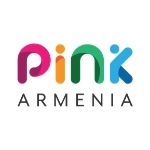 “Pink” human rights defender non-governmental organization (Pink Armenia) was founded in 2007. Pink is a community-based LGBT (lesbian, gay, bisexual, trans) organization, which has been established by LGBT community, serves and supports the needs of the community, and promotes the LGBT persons’ human rights protection process and advocates for the change of public policy around LGBT issues.
“Pink” human rights defender non-governmental organization (Pink Armenia) was founded in 2007. Pink is a community-based LGBT (lesbian, gay, bisexual, trans) organization, which has been established by LGBT community, serves and supports the needs of the community, and promotes the LGBT persons’ human rights protection process and advocates for the change of public policy around LGBT issues.
Pink provides a full range of services to LGBT community representatives whose rights have been violated on the basis of sexual orientation, gender identity and/or gender expression. Moreover, the organization represents the needs and interests of LGBT people, as well as advocates for solutions and legal protection of these issues at local, state and international levels.
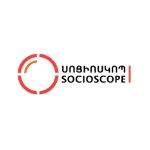 “Socioscope” Societal Research and Consultancy Center NGO was founded in 2008 to research, teach and advocate for the improvement of social situation and democratization of Armenia. The mission is to contribute to the establishment of up-to-date critical social thought in Armenia through research and educational initiatives. The organization is working:
“Socioscope” Societal Research and Consultancy Center NGO was founded in 2008 to research, teach and advocate for the improvement of social situation and democratization of Armenia. The mission is to contribute to the establishment of up-to-date critical social thought in Armenia through research and educational initiatives. The organization is working:
- to challenge the dominant social knowledge of power, nation, culture, gender, and sexuality;
- to understand, define the psychological, socio-cultural, and political conditions for human agency in Armenian society;
- to contribute to social change in Armenia by supporting human agency, popularizing critical thought and fostering dialogue between various groups of society.
Socioscope is a founding member of the Human Rights House Yerevan.
 “Women in Black, Armenia” is an anti-militarist, feminist, peace-building initiative that was founded by 11 young women from different regions of Armenia. Since 2016 the “Women Black, Armenia” PeaceBuiding Initiative started to act as an independent body and is governed by its own young members.
“Women in Black, Armenia” is an anti-militarist, feminist, peace-building initiative that was founded by 11 young women from different regions of Armenia. Since 2016 the “Women Black, Armenia” PeaceBuiding Initiative started to act as an independent body and is governed by its own young members.
The vision of the group is to have a society where law and human rights prevail, conflicts are regulated in a peaceful manner, women are actively involved in peace-building and decision making processes on all levels, and there is no space for violence. Thus, the mission of the group is to promote the ideology of peace, to direct young women to spread democratic values in the RA, to involve women in civic and institutional initiatives as well as in peace-building procedures on all levels. To this aim, in parallel with the activities currently being undertaken by the group to empower women and to make them aware of “Women in Black” International movement, there is a direct need to make the group stronger itself by capacity-building workshops, team building activities, and other relevant means.
Decision making in “Women in Black” Armenia group is participatory and non-hierarchic. All decisions are made upon a consensus within the whole group members. We use transformative leadership principles which are one of the most important aspects of all our activities.
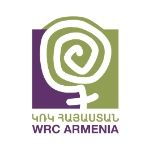 The Women's Resource Center was founded in 2003 by women from Armenia and the diaspora, and is the first resource center created in the post-soviet Armenia for young women. At the beginning it was located inside the Yerevan State University campus and served as a drop-in center for young female students. From 2006 WRCA moved to the downtown of Yerevan and now is open for women of all ages, education, sexual orientation and social backgrounds. WRCA is working in the area of women's human rights, reproductive and sexual rights, sexual violence and women's role in the conflict resolution and peace building in the region of South Caucasus.
The Women's Resource Center was founded in 2003 by women from Armenia and the diaspora, and is the first resource center created in the post-soviet Armenia for young women. At the beginning it was located inside the Yerevan State University campus and served as a drop-in center for young female students. From 2006 WRCA moved to the downtown of Yerevan and now is open for women of all ages, education, sexual orientation and social backgrounds. WRCA is working in the area of women's human rights, reproductive and sexual rights, sexual violence and women's role in the conflict resolution and peace building in the region of South Caucasus.
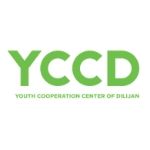 YCCD NGO was established in 2006 and registered in 2008 on the basis of volunteerism of some young people with 4-5 years of working experience in NGO sector. The main activities of the YCCD NGO include the spheres of Non-formal education, Environment, Civic Participation for youth.
YCCD NGO was established in 2006 and registered in 2008 on the basis of volunteerism of some young people with 4-5 years of working experience in NGO sector. The main activities of the YCCD NGO include the spheres of Non-formal education, Environment, Civic Participation for youth.
The main target group of our NGO is the young men and women aged between 15 and 30, who are living in the rural communities of Armenia, especially in the Northern regions (Tavush, Lori and Shirak) and have different educational, social, family and professional background
Youth Cooperation Center of Dilijan is a non-governmental organization with the mission to increase civic participation of young people for the community development. In order to meet this task the NGO has been implementing the educational and Youth development programs. The YCCD NGO works with local, regional, national and international organizations and foundations.

